YOUTH AND THE VOTE
Please select a state from the dropdown below to view detailed information and resources regarding Youth Voting in that state.
Young people (18-29) consistently have the lowest voter turnout of any age group (See Figure 1). Shockingly, in the 2022 midterms, only 23% of 18-29 year olds registered and voted. Registration and turnout of the youngest age group (18-19) is even lower.
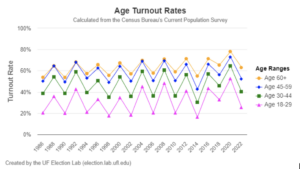
While this number is shockingly low, there is some good news. First, there has been considerable progress in recent years, reflecting increased efforts on college campuses. Furthermore, despite the low registration rates, when young voters do register, they are likely to turn out! According to The Civics Center, 86% of young voters who are registered turn out and vote.
Yourvoicematters.vote, presents the most recent available youth voter registration and turnout data for each state. In addition, there is a youth voter profile for each state that highlights some of the policies, resources, and practices that are associated with reaching, registering, and turning out young voters in that state.
Yourvoicematters.vote is a program of the nonpartisan National Women’s Foundation and its nonpartisan partners. We highlight creative, committed and successful efforts across the country to encourage greater civic participation by young people. We hope that yourvoicematters.vote will help spark greater attention and action to promote what works to increase youth civic participation–especially registration of the 4,000,000 young people who turn 18 and become eligible to vote each year.
Why is this so important? The benefits of increasing the youth vote are clear. According to Tufts CIRCLE, the preeminent think tank devoted to the measurement and understanding of youth’s civic engagement:
“Voting is a fundamental act of civic participation through which young people contribute to democracy. While it’s just one of many ways that youth engagement can take, it is a powerful way for young people to make their voices heard and to have an impact on issues that affect them and their communities; it can also serve as an entry point to other forms of participation.”
Others note that, when individuals are civically engaged from their youth, they are more likely to vote and participate in other civic activities throughout their lives. Certainly, young people have the most to gain or lose from many issues in front of voters.
With more than four million young people turning 18 every year, young voters are also critically important because they represent the largest group of potential new voters and could play a decisive role in a number of elections.
Finally, focusing on the youth vote is practical because there are concrete things that individuals and groups can do:
-
- Support civic education, voter registration, and turnout of young people–especially initiatives led by young people;
- Support organizations engaged in youth and the vote as facilitators, volunteers, and donors;
- Support the creation and implementation of action plans by colleges and universities and high schools;
- Support High School Voter Registration Week, registration drives, etc;
- Encourage the effective (and safe) use of social media; and
- Recognize, celebrate, share, and support successful efforts.
Alabama |
|||||||
|---|---|---|---|---|---|---|---|
2014 |
2016 |
2018 |
2020 |
2022 |
2024 |
||
Midterm |
General |
Midterm |
General |
Midterm |
General |
||
VOTER TURNOUT 18-29 |
17.80% | 47.70% | 35.10% | 50.50% | 23.20% | Frey* | |
VOTER TURNOUT 18-19 |
– | – | – | 41% | – | CIRCLE* | |
REGISTRATION RATE 18-24 |
37.40% | 55.20% | 48.20% | 50.60% | 43.40% | Census* | |
VOTER TURNOUT 18-24 |
16.10% | 41.40% | 28.30% | 44.90% | 18.70% | Census* | |
ALABAMA

18.70%
YOUTH TURNOUT
ALABAMA YOUTH VOTE
TOP STRATEGIES/INITIATIVES TO INCREASE REGISTRATION & TURNOUT
Statewide Policies and Resources
- Alabama’s Official Election Center
- Online registration. Absentee ballots can be used due to “physical illness or infirmity”– must have two witnesses or be notarized.
- State ID rules and helpline for Alabama.
- Photo ID required to vote in Alabama. Photo ID guide.
- Alabama: Election deadlines, dates, and rules
High school Initiatives
- Voter registration at 18.
- Students who are at least 16 can volunteer to serve as unpaid poll workers.
College and University initiatives
- 9 campuses participated in ALL IN Campus Democracy Challenge, including:
- University of Alabama Huntsville increased voter turnout to 70.7%.
- University of Alabama Agricultural and Mechanical University increased turnout by 17.1% to 61%; their 2022 goal is to “institutionalize voter registration, voter education, and voter turnout indefinitely throughout AAMU’s campus.”
- Andrew Goodman Foundation is partnering with the University of Alabama on My Vote Everywhere.
- University Academy of Hair Design voting information site.
- Alabama Campus Voter Guide
Other Factors and Initiatives

This profile was prepared by Your Voice Matters, a nonpartisan initiative to increase registration of youth.
We welcome your feedback to improve this profile!
Alaska |
|||||||
|---|---|---|---|---|---|---|---|
2014 |
2016 |
2018 |
2020 |
2022 |
2024 |
||
Midterm |
General |
Midterm |
General |
Midterm |
General |
||
VOTER TURNOUT 18-29 |
30.40% | 42.80% | 39.70% | 45.70% | 24.20% | Frey* | |
VOTER TURNOUT 18-19 |
– | – | – | – | – | CIRCLE* | |
REGISTRATION RATE 18-24 |
– | – | 48.30% | – | 45.50% | Census* | |
VOTER TURNOUT 18-24 |
– | – | 35.50% | – | 25% | Census* | |
ALASKA

25.00%
YOUTH TURNOUT
ALASKA YOUTH VOTE

TOP STRATEGIES/INITIATIVES TO INCREASE REGISTRATION & TURNOUT
Statewide Policies and Resources
- Alaska Division of Elections voting portal.
- Student IDs are accepted.
- State ID rules and helpline for Alaska.
- Alaska: Election deadlines, dates, and rules
High school Initiatives
- Youth Vote Ambassador program for high school students who are at least 16.
- Anchorage youth created Youth Vote to support civic engagement by young eligible voters.
- State-sponsored 2022 sticker contest winners.
- Alaska Teen Media focuses on issues of concern to youth across multiple media.
College and University initiatives
- College voter portal.
- UAA Votes encourages civic participation on the University of Alaska Anchorage campuses. UAA also participated in ALL IN Campus Democracy Challenge. The campus was recognized with a Bronze Seal for turning out more than 50% of eligible students.
- Alaska Campus Voter Guide
Other Factors and Initiatives
- League of Women Voters Alaska information on voting and issues.

This profile was prepared by Your Voice Matters, a nonpartisan initiative to increase registration of youth.
We welcome your feedback to improve this profile!
Arizona |
|||||||
|---|---|---|---|---|---|---|---|
2014 |
2016 |
2018 |
2020 |
2022 |
2024 |
||
Midterm |
General |
Midterm |
General |
Midterm |
General |
||
VOTER TURNOUT 18-29 |
16.40% | 45.30% | 36.30% | 59.40% | 27.10% | Frey* | |
REGISTRATION RATE 18-29 |
– | – | 26% | 51% | – | CIRCLE* | |
VOTER TURNOUT 18-19 |
– | – | 33% | 46% | – | CIRCLE* | |
REGISTRATION RATE 18-24 |
35.10% | 47.10% | 46.30% | 56.70% | 42.90% | Census* | |
VOTER TURNOUT 18-24 |
14.40% | 35.80% | 33.30% | 50.10% | 22.60% | Census* | |
ARIZONA

22.60%
YOUTH TURNOUT
ARIZONA YOUTH VOTE
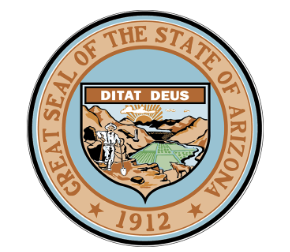
TOP STRATEGIES/INITIATIVES TO INCREASE REGISTRATION & TURNOUT
Statewide Policies and Resources
- Secretary of State of Arizona website.
- How to vote in Arizona.
- Absentee ballots are available and easily accessible. Early voting starts in July.
- Ballotpedia provides easily understandable voting information.
- State ID rules and helpline for Arizona.
- Arizona: Election deadlines, dates, and rules
High school Initiatives
- Concern re lack of adequate civic education in high schools in Arizona.
- Arizona Department of Education civic education program.
- The Mayor of Mesa, Arizona is presenting awards to schools that register at least 65% of eligible seniors.
College and University initiatives
- Seven campuses in Arizona participated in ALL IN Campus Democracy Challenge.
- Arizona State University won Silver Award for 2020 turnout and student engagement. 2022 plan developed by student representatives.
- Lessons learned from a successful poll worker program.
- One-stop website for student voting.
- Coalition supporting youth vote across Arizona.
- Survey of AZ college students, 80% didn’t know the age when people can vote.
- AZ Legislature considering restrictions on voting by out-of-state students.
Other Factors and Initiatives
- League of Women Voters, Arizona website.
- Concern “early voting and mail-in voting unjustly targets voters in underserved communities, the elderly, voters with disabilities, and those who live in rural communities or lack reliable transportation to the polls including Native Americans,” Pinny Sheoran, president-elect, LWV.
- Arizona embraced online voter registration early – in 2002. Today, 70% of registrations are online.

This profile was prepared by Your Voice Matters, a nonpartisan initiative to increase registration of youth.
We welcome your feedback to improve this profile!
Arkansas |
|||||||
|---|---|---|---|---|---|---|---|
2014 |
2016 |
2018 |
2020 |
2022 |
2024 |
||
Midterm |
General |
Midterm |
General |
Midterm |
General |
||
VOTER TURNOUT 18-29 |
17.40% | 38.40% | 26.70% | 38% | 24.20% | Frey* | |
VOTER TURNOUT 18-19 |
– | – | – | 32% | – | CIRCLE* | |
REGISTRATION RATE 18-24 |
48.20% | 49.10% | 42.40% | 48.30% | 40.90% | Census* | |
VOTER TURNOUT 18-24 |
14.70% | 33.10% | 21.90% | 32.10% | 21.80% | Census* | |
ARKANSAS

21.80%
YOUTH TURNOUT
ARKANSAS YOUTH VOTE
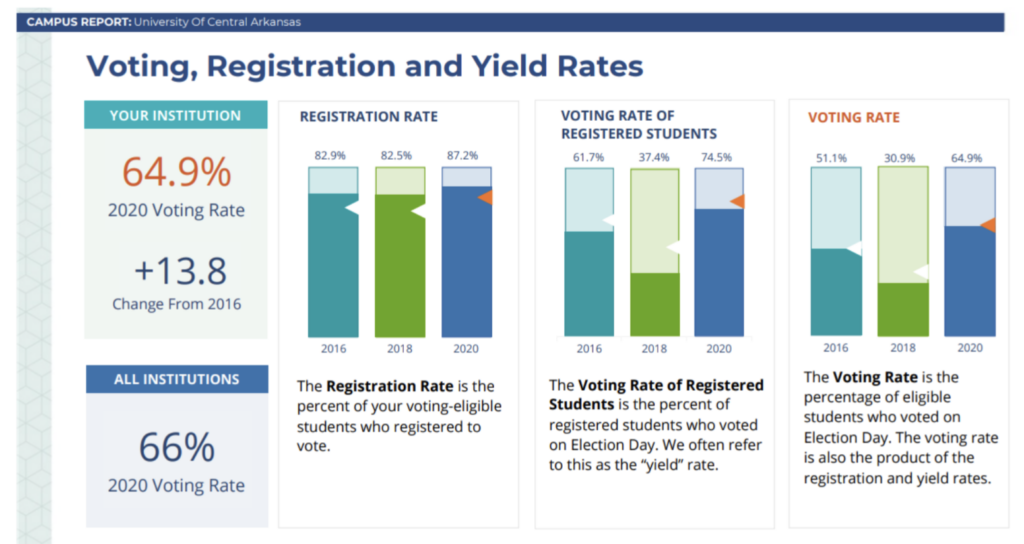
TOP STRATEGIES/INITIATIVES TO INCREASE REGISTRATION & TURNOUT
Statewide Policies and Resources
- Arkansas Secretary of State voting portal.
- State ID rules and helpline.
- Arkansas: Election deadlines, dates, and rules
High school Initiatives
- Students discuss how to stop violence and get out the vote, sponsored by Martin Luther King Commission.
- Students can work as unpaid poll workers from age 16.
College and University initiatives
- Seven campuses participated in the ALL IN Campus Democracy Challenge.
- Arkansas Tech University had one of the best action plans in 2020.
- University of Central Arkansas engaged fraternities and sororities and achieved a 64.9% turnout in 2020 (see graph).
- Conducting a voter registration drive on campus.
- ARKANSAS CAMPUS VOTER GUIDE
Other Factors and Resources
- In 2020, the University of Arkansas, League of Women Voters, AIGA and other nonprofits created a traveling exhibit: Get out the Vote: Empowering the Women’s Vote.
- Arkansas has one of the earliest deadlines for voter registration–30 days before the election. It also has a high rejection rate of absentee ballots and, despite a LWV lawsuit, does not inform voters. According to the Center for Public Integrity, these and other methods disproportionately affect Black citizens and make voting more challenging.

This profile was prepared by Your Voice Matters, a nonpartisan initiative to increase registration of youth.
We welcome your feedback to improve this profile!
California |
|||||||
|---|---|---|---|---|---|---|---|
2014 |
2016 |
2018 |
2020 |
2022 |
2024 |
||
Midterm |
General |
Midterm |
General |
Midterm |
General |
||
VOTER TURNOUT 18-29 |
16.60% | 45.50% | 38.10% | 55.80% | 34.10% | Frey* | |
VOTER TURNOUT 18-19 |
– | – | – | 57% | – | CIRCLE* | |
REGISTRATION RATE 18-24 |
34.80% | 44% | 41.60% | 53.60% | 43.40% | Census* | |
VOTER TURNOUT 18-24 |
14.30% | 37.50% | 32.40% | 48.50% | 26% | Census* | |
CALIFORNIA

26.00%
YOUTH TURNOUT
CALIFORNIA YOUTH VOTE
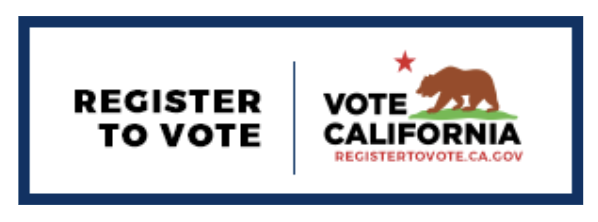
TOP STRATEGIES/INITIATIVES TO INCREASE REGISTRATION & TURNOUT
Statewide Policies and Resources
- California Official Voter Guide.
- State ID rules and helpline for California voters.
- California: Election deadlines, dates, and rules
High school Initiatives
- State of California High School voting portal.
- Voter pre-registration 16, vote at 18. Register online.
- League of Women Voters California collaborated with Mixte on an award-winning campaign to motivate young voters via Snapchat (4.57 million impressions) and TikTok (1.4 million views).
- California Students Vote Project Social Media Toolkit.
- Proposition to allow 17 year olds to vote in primaries if 18 by general election was defeated.
College and University initiatives
- Voter registration for college students.
- California law requires community colleges and state universities to inform and mobilize student voters and increase civic engagement–Assembly Bill 963 Toolkit.
- The Secretary of State and the California Students Voter Project sponsored the 2020 Ballot Bowl which resulted in 82,000 students registered on collaborating campuses.
- 71 campuses participated in ALL IN Campus Democracy Challenge;
- 7 campuses won Platinum Awards for voter turnout rates > 80%.
- University of California – Los Angeles had one of the best action plans for 2020.
- Many college initiatives, e.g. Pomona, VoteUSC, Stanford,
- CALIFORNIA CAMPUS VOTER GUIDE
Other Factors and Resources
- League of Women Voters, California Chapters.

This profile was prepared by Your Voice Matters, a nonpartisan initiative to increase registration of youth.
We welcome your feedback to improve this profile!
Colorado |
|||||||
|---|---|---|---|---|---|---|---|
2014 |
2016 |
2018 |
2020 |
2022 |
2024 |
||
Midterm |
General |
Midterm |
General |
Midterm |
General |
||
VOTER TURNOUT 18-29 |
31.40% | 55.10% | 41.80% | 54.50% | 39.90% | Frey* | |
VOTER TURNOUT 18-24 |
17.10% | 43.10% | 38% | 48.60% | 33.60% | Census* | |
VOTER TURNOUT 18-19 |
– | – | – | 57% | – | CIRCLE* | |
REGISTRATION RATE 18-24 |
35% | 66% | 68% | 55.60% | 48.20% | Census* | |
COLORADO

33.60%
YOUTH TURNOUT
COLORADO YOUTH VOTE
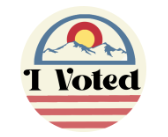
TOP STRATEGIES/INITIATIVES TO INCREASE REGISTRATION & TURNOUT
State Policies and Initiatives
- Go Vote Colorado is the State’s official voting website.
- Colorado encourages online registration, mails a ballot to every registered voter, allows absentee voting, and offers drop off ballot boxes to facilitate voting.
- ID rules and helpline for Colorado voters.
- Colorado: Election deadlines, dates, and rules
High school Initiatives
- Secretary of State portal for high school voters.
- Colorado encourages pre-registration from age 16.
- Colorado law requires every high school to name a deputy registrar to help students register on-campus.
- High school students can work at the polls on Election Day as Student Election Judges.
- Colorado’s Secretary of State recognizes high schools that register at least 85% of their seniors with the Eliza Pickrell Routt Award.
Find your high school!
College and University initiatives
- 21 campuses are participating in ALL IN Campus Democracy Challenge; 3 campuses won Platinum Awards for 2020 voter turnout rates > 80%. 2022 awards will be announced in November 2023.
- The Secretary of State sponsors the Colorado Campus Voting Challenge in collaboration with ALL IN and NSLVE and encourages all Colorado colleges and universities to participate.
- Colorado College registered 84.6% of its students in 2020 and won awards for highest registration and best plan. It sponsors CC Votes, a portal that offers students voting information and support and many opportunities for civic engagement.
- Other 2020 Colorado Campus Voting Challenge Award Winners:
- Arapahoe Community College – Highest Voter Registration & Highest Turnout, 2-year Institution;
- Northeastern Junior College – Most Improved Voter Turnout Award, 2-year Institution:
- University of Denver – Most Improved Voter Turnout Award, 4-year Institution: and
- Colorado State University–Best Campus Democratic Engagement Action Plan Award, 4-year Institution.
- COLORADO CAMPUS VOTER GUIDE
OTHER INFLUENCES
-
29,000 ballots were rejected in Colorado in 2020 with 65% coming from young voters (18-24), many of whom did not provide adequate identification with their absentee ballots.
- The Denver Broncos encourage all eligible Coloradans to register and vote.
- New Era Colorado “is the leading voice for young people in Colorado politics . . . We work alongside our peers to grow our generation’s power. We fight for a better Colorado for everyone.” They report an 82% turnout of young people they register to vote.
- CC Votes includes links to a comprehensive list of NGOs working in Colorado on voting and civic engagement.

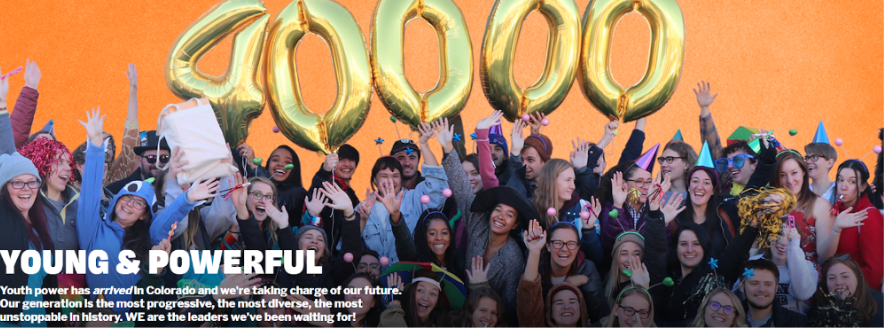

This profile was prepared by Your Voice Matters, a nonpartisan initiative to increase registration of youth.
We welcome your feedback to improve this profile!
Connecticut |
|||||||
|---|---|---|---|---|---|---|---|
2014 |
2016 |
2018 |
2020 |
2022 |
2024 |
||
Midterm |
General |
Midterm |
General |
Midterm |
General |
||
VOTER TURNOUT 18-29 |
23.40% | 49.80% | 37.80% | 55.30% | 29.70% | Frey* | |
VOTER TURNOUT 18-19 |
– | – | – | 49% | – | CIRCLE* | |
REGISTRATION RATE 18-24 |
35.20% | 46.60% | 47.80% | 58% | 42.10% | Census* | |
Voter Turnout 18-24 |
17.70% | 37% | 32.70% | 50.10% | 23.40% | Census* | |
CONNECTICUT

23.40%
YOUTH TURNOUT
CONNECTICUT YOUTH VOTE
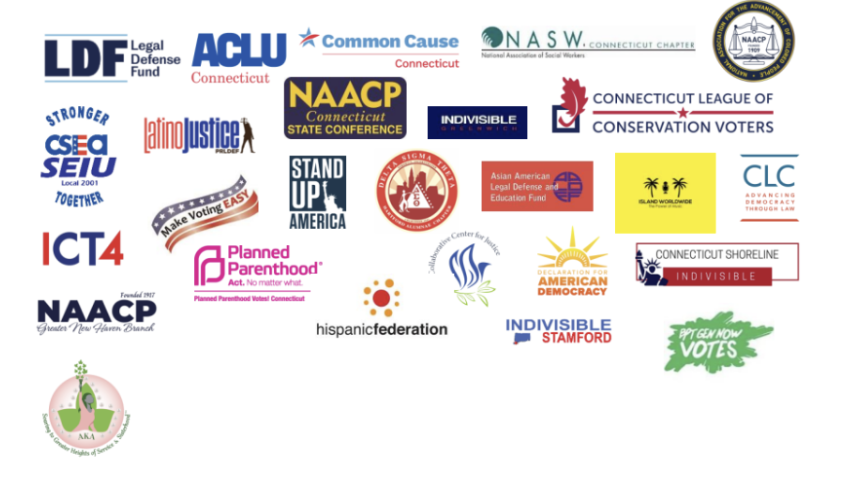
TOP STRATEGIES/INITIATIVES TO INCREASE REGISTRATION & TURNOUT
Statewide Policies and Resources
- Connecticut passes voting rights reform bill, June 2023
- Secretary of State’s website on CT elections and voting.
- State ID rules and helpline for Connecticut voters.
High school Initiatives
- Voting fact sheet for students and new voters.
- New Britain LWV offers free membership to high school and college students.
- On behalf of a number of NGOs, LWV describes the success of the measures taken in 2020 to ease voting for all ages during the pandemic.
College and University initiatives
- Voting fact sheet for students and new voters.
- New Britain LWV offers free membership to high school and college students.
- On behalf of a number of NGOs, LWV describes the success of the measures taken in 2020 to ease voting for all ages during the pandemic.
Other Factors and Initiatives
- League of Women Voters Connecticut: 411
- LWV Social media guide
- Ballotpedia is a nonpartisan source of information on politics and what’s on the ballot in Connecticut.

This profile was prepared by Your Voice Matters, a nonpartisan initiative to increase registration of youth.
We welcome your feedback to improve this profile!
Delaware |
|||||||
|---|---|---|---|---|---|---|---|
2014 |
2016 |
2018 |
2020 |
2022 |
2024 |
||
Midterm |
General |
Midterm |
General |
Midterm |
General |
||
VOTER TURNOUT 18-29 |
22.10% | 43.20% | 27.10% | 54.70% | 26.70% | Frey* | |
VOTER TURNOUT 18-19 |
– | – | – | 49% | – | CIRCLE* | |
VOTER REGISTRATION 18-24 |
– | – | 42.30% | 64.90% | 51% | Census* | |
VOTER TURNOUT 18-24 |
– | – | 29.80% | 51.80% | 25.60% | Census* | |
DELAWARE

25.60%
YOUTH TURNOUT
DELAWARE YOUTH VOTE
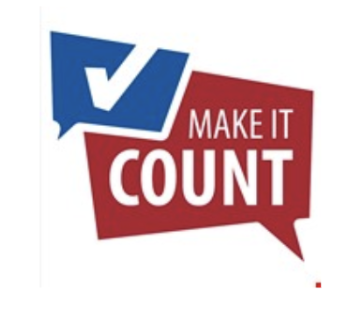
TOP STRATEGIES/INITIATIVES TO INCREASE REGISTRATION & TURNOUT
State Initiatives and Resources
- Delaware Department of Elections portal.
- Obtain a ballot to vote by mail.
- ID rules and helpline for Delaware voters.
- Delaware: Election deadlines, dates, and rules
High school Initiatives
- Pre-registration starts at 16. Vote at 18.
- Are you 16? Work as a poll worker.
- Mock Election held in 2018.
- Limited youth-focused resources
College and University initiatives
- Two campuses participate in ALL IN Campus Democracy Challenge.
- University of Delaware achieved a turnout rate of 75.2% of eligible voters in 2020 working with TurboVote and student-led Make it Count.
- Join Make It Count.
- Nearby Rutgers University supports registration of students from Delaware.
- DELAWARE CAMPUS VOTER GUIDE
Other Factors and Initiatives
- League of Women Voters, Delaware.
- Citizen’s Guide to Voting.

This profile was prepared by Your Voice Matters, a nonpartisan initiative to increase registration of youth.
We welcome your feedback to improve this profile!
Florida |
|||||||
|---|---|---|---|---|---|---|---|
2014 |
2016 |
2018 |
2020 |
2022 |
2024 |
||
Midterm |
General |
Midterm |
General |
Midterm |
General |
||
VOTER TURNOUT 18-29 |
22% | 42.60% | 33.10% | 48.40% | 26.70% | Frey* | |
VOTER TURNOUT 18-19 |
– | – | – | 52% | – | CIRCLE* | |
REGISTRATION RATE 18-24 |
34.50% | 45.80% | 39.60% | 49.80% | 36.50% | Census* | |
VOTER TURNOUT 18-24 |
16.30% | 33.10% | 27.10% | 41.60% | 21.20% | Census* | |
FLORIDA

21.20%
YOUTH TURNOUT
FLORIDA YOUTH VOTE
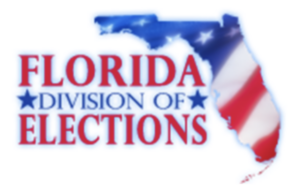
TOP STRATEGIES/INITIATIVES TO INCREASE REGISTRATION & TURNOUT
Statewide Policies and Resources
- Election integrity from the department of state is top priority.
- Department of State official voting website.
- State ID rules and helpline for Florida.
- Florida: Election deadlines, dates, and rules
High school Initiatives
- Voter pre-registration starts at 16, vote at 18.
- LWV works with schools to register eligible high school students. For example, the Palm Beach LWV mobilized some 250 volunteers to register nearly 2000 first time voters.
- Civic Center reports Low registration rates of 18 year olds – 25% in Miami-Dade as of May 2022.
College and University initiatives
- 24 campuses participated in ALL IN Campus Democracy Challenge.
- 2020 Florida Campus Voting Challenge Award Winners:
- Highest Voter Registration Award: New College Florida
- Most Improved Voter Turnout Award: Stetson University
- Highest Voter Turnout Award: New College Florida
- Best Campus Democratic Engagement Action Plan Award, 4-year Institution: University of South Florida
- Florida PIRG volunteers register thousand new voters on more than a dozen campuses.
- Andrew Goodman Voter Friendly Campus Award
- FLORIDA CAMPUS VOTER GUIDE
- Out of state and some student IDs are not accepted.
Other Factors and Initiatives
- Parkland and other school shootings continue to stimulate interest in civic and political participation.
- NAACP supported registration of Black voters in Florida, part of the first National Black Voter Day.
- Florida passed laws that make voting more difficult such as banning snacks and water to people waiting in voting lines.

This profile was prepared by Your Voice Matters, a nonpartisan initiative to increase registration of youth.
We welcome your feedback to improve this profile!
Georgia |
|||||||
|---|---|---|---|---|---|---|---|
2014 |
2016 |
2018 |
2020 |
2022 |
2024 |
||
Midterm |
General |
Midterm |
General |
Midterm |
General |
||
VOTER TURNOUT 18-29 |
26.90% | 46% | 39% | 52.80% | 37.80% | Frey* | |
VOTER TURNOUT 18-19 |
– | – | – | 45% | – | CIRCLE* | |
REGISTRATION RATE 18-24 |
38.60% | 51.60% | 49.80% | 56.10% | 50.40% | Census* | |
VOTER TURNOUT 18-24 |
20.60% | 40.50% | 34.60% | 49.40% | 34.90% | Census* | |
GEORGIA

34.90%
YOUTH TURNOUT
GEORGIA YOUTH VOTE

TOP STRATEGIES/INITIATIVES TO INCREASE REGISTRATION & TURNOUT
Statewide Policies and Resources
- Georgia: Election deadlines, dates, and rules
- Secretary of State website on how to register and vote.
- Personalized voter page.
- Online voter registration.
- State ID rules and helpline for Georgia.
High school Initiatives
- Atlanta Public Schools embraced the Good Trouble Voter Campaign goal to register ALL young voters.
- Voter registration starts at 17.5, vote at 18.
- Georgia law requires High Schools to help their students vote and include voting basics on their websites.
- Students: help FairVote register 100% of high school students!
College and University initiatives
- Georgia has 530,000 college students.
- 26 campuses participated in ALL IN Campus Democracy Challenge.
- Spelman College was recognized for increasing voter turnout 21.3% to 79.4% of eligible students in 2020 and plans to expand participation in 2022 (see 2020 NSLVE Campus Report).
- Georgia has many grassroots and campus-based organizations that work to raise awareness, register students, and get out the vote including the Campus Election Engagement Project, New Georgia Project, and University of Georgia Votes.
- Georgia College and State University was recognized for its action plans and increased voter turnout (see Action Plans and NSLVE Campus Report).
- GEORGIA CAMPUS VOTER GUIDE
Other Factors and Initiatives
- The League of Women Voters focused on the Georgia runoffs and partnered with Women Power the Vote to send 450,000 text messages and 65,000 texts urging Georgia citizens to vote.
- Georgia accepts some but not all student IDs for registration.
- Challenges returning absentee ballots on time led to 52% being rejected.
- Laws passed that make voting more difficult such as banning snacks and water to people waiting in voting lines.

This profile was prepared by Your Voice Matters, a nonpartisan initiative to increase registration of youth.
We welcome your feedback to improve this profile!
Hawaii |
|||||||
|---|---|---|---|---|---|---|---|
2014 |
2016 |
2018 |
2020 |
2022 |
2024 |
||
Midterm |
General |
Midterm |
General |
Midterm |
General |
||
VOTER TURNOUT 18-29 |
16.10% | 26.70% | 27% | 46.40% | 32.50% | Frey* | |
VOTER TURNOUT 18-19 |
– | – | – | – | – | CIRCLE* | |
REGISTRATION RATE 18-24 |
23.40% | 33.40% | 26.80% | 43.40% | 41.90% | Census* | |
VOTER TURNOUT 18-24 |
8.20% | 20.40% | 21.70% | 38.80% | 29% | Census* | |
HAWAII

29.00%
YOUTH TURNOUT
HAWAII YOUTH VOTE
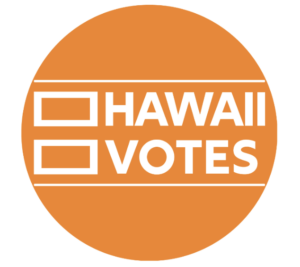
TOP STRATEGIES/INITIATIVES TO INCREASE REGISTRATION & TURNOUT
Statewide Policies and Resources
- Office of Elections official portal.
- Online registration. Ballots mailed to all voters. Drop-boxes, etc.
- Student IDs are not acceptable in Hawaii. State ID rules and helpline for Hawaii.
- Statewide video contest for students on voting and voting by mail.
- Hawaii: Election deadlines, dates, and rules
High school Initiatives
- Voter pre-registration starts at 16, vote at 18.
- Because of Hawaii’s low turnout, legislation was introduced to automatically register enrolled public and charter high school students at age of 16. S.B.2296
- Office of Elections on Facebook.
- Ho’ohuli Youth project focuses on issues of concern to Hawaii’s youth.
College and University initiatives
- Guidance for College students
- 2 campuses participated in ALL IN Campus Democracy Challenge.
- University of Hawaii received a bronze award in 2020 for > 50% voting rate.
- Kapiʻolani Community College Action Plan focused on sustainability and climate change.
- Absentee voting for college students who are out of state.
- HAWAII CAMPUS VOTER GUIDE
Other Factors and Initiatives
- Pandemic shifted election to mail-in or drop-boxes. See map for locations.

This profile was prepared by Your Voice Matters, a nonpartisan initiative to increase registration of youth.
We welcome your feedback to improve this profile!
Idaho |
|||||||
|---|---|---|---|---|---|---|---|
2014 |
2016 |
2018 |
2020 |
2022 |
2024 |
||
Midterm |
General |
Midterm |
General |
Midterm |
General |
||
REGISTRATION RATE 18-29 |
29.40% | 47.40% | 30.20% | 55.80% | 44.20% | Census* | |
VOTER TURNOUT 18-19 |
– | – | – | – | 43% | CIRCLE* | |
VOTER TURNOUT 18-24 |
11.80% | 40.70% | 19.90% | 52.10% | 22.10% | Census* | |
VOTER TURNOUT 18-29 |
18.20% | 47.20% | 25.60% | 52.60% | 24.80% | Frey* | |
IDAHO

22.10%
YOUTH TURNOUT
IDAHO YOUTH VOTE
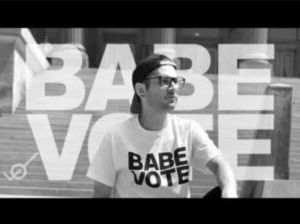
TOP STRATEGIES/INITIATIVES TO INCREASE REGISTRATION & TURNOUT
Statewide Policies and Resources
- Official voting information for Idaho.
- State ID rules and helpline for Idaho.
- VoteRiders
- https://www.whatthevoteidaho.org/
- Idaho: Election deadlines, dates, and rules
High school Initiatives
- Idaho high school students are required to take Civics for one year and pass the US Citizenship Test.
- Babe Vote, founded by teens in Boise, is dedicated to registering Gen Z students and inspiring them to vote.
College and University initiatives
- Three campuses participated in ALL IN Campus Democracy Challenge.
- University of Idaho registered 84.1% of eligible students with a 69.6% voter turnout. Vandals Vote is the university’s program of current activities to promote voting.
- Requirements for students to establish domicile and the right to vote in Idaho.
- IDAHO CAMPUS VOTER GUIDE
Other Factors and Initiatives
- What the Vote has as its mission inspiring and supporting Gen Z to vote and participate in civic life. Run by volunteers, What the Vote was started because of concern over low turnout among students in Idaho.
- Analysis of Latino vote in Idaho.

This profile was prepared by Your Voice Matters, a nonpartisan initiative to increase registration of youth.
We welcome your feedback to improve this profile!
Illinois |
|||||||
|---|---|---|---|---|---|---|---|
2014 |
2016 |
2018 |
2020 |
2022 |
2024 |
||
Midterm |
General |
Midterm |
General |
Midterm |
General |
||
VOTER TURNOUT 18-29 |
18.70% | 48.20% | 34.60% | 55.10% | 33.40% | Frey* | |
VOTER TURNOUT 18-19 |
– | – | – | – | – | CIRCLE* | |
REGISTRATION RATE 18-24 |
37.50% | 60.30% | 44.30% | 58.50% | 47.80% | Census* | |
VOTER TURNOUT 18-24 |
13.80% | 45.30% | 28.30% | 51.40% | 22.80% | Census* | |
ILLINOIS

22.80%
YOUTH TURNOUT
ILLINOIS YOUTH VOTE
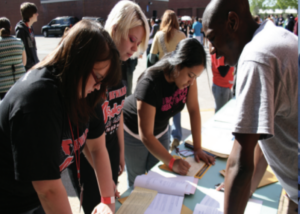
TOP STRATEGIES/INITIATIVES TO INCREASE REGISTRATION & TURNOUT
Statewide Policies and Resources
- Illinois’ official elections portal.
- ID rules and helpline for Illinois voters.
- Illinois: Election deadlines, dates, and rules
High school Initiatives
- Illinois legislature requires that every high school provide a one page information sheet on voter registration to their students.
- Cook County Clerk’s office operates a high school program which enlists students as paid judges and as deputy registrars on Election Day as well as encouraging student registration.
College and University initiatives
- 45 campuses statewide participated in the ALL IN Campus Democracy Challenge.
- The University of Illinois at Chicago has now updated their award-winning action plan with campus-wide activities planned year round to turn out the vote in 2022.
- The Illinois State University Redbirds Vote initiative worked to promote civic engagement and broadened their restoration efforts to outreach to youth, especially of color and tribal communities
- ILLINOIS CAMPUS VOTER GUIDE
Other Factors and Initiatives
- Illinois Ballotpedia hub.
- In response to pandemic, Illinois enacted legislation to ensure that “. . . all eligible residents can wield their right to vote in a way that doesn’t risk their personal health”— making Election Day a holiday, closing schools except as polling places, expanding vote by mail, and voting hours.

This profile was prepared by Your Voice Matters, a nonpartisan initiative to increase registration of youth.
We welcome your feedback to improve this profile!
Indiana |
|||||||
|---|---|---|---|---|---|---|---|
2014 |
2016 |
2018 |
2020 |
2022 |
2024 |
||
Midterm |
General |
Midterm |
General |
Midterm |
General |
||
VOTER TURNOUT 18-29 |
15.70% | 46.70% | 34.80% | 43.50% | 20% | Frey* | |
VOTER TURNOUT 18-19 |
– | – | – | – | – | CIRCLE* | |
REGISTRATION RATE 18-24 |
48% | 54.70% | 44.20% | 47% | 41.70% | Census* | |
VOTER TURNOUT 18-24 |
16.30% | 40.80% | 27.80% | 37.70% | 15.10% | Census* | |
INDIANA

15.10%
YOUTH TURNOUT
INDIANA YOUTH VOTE
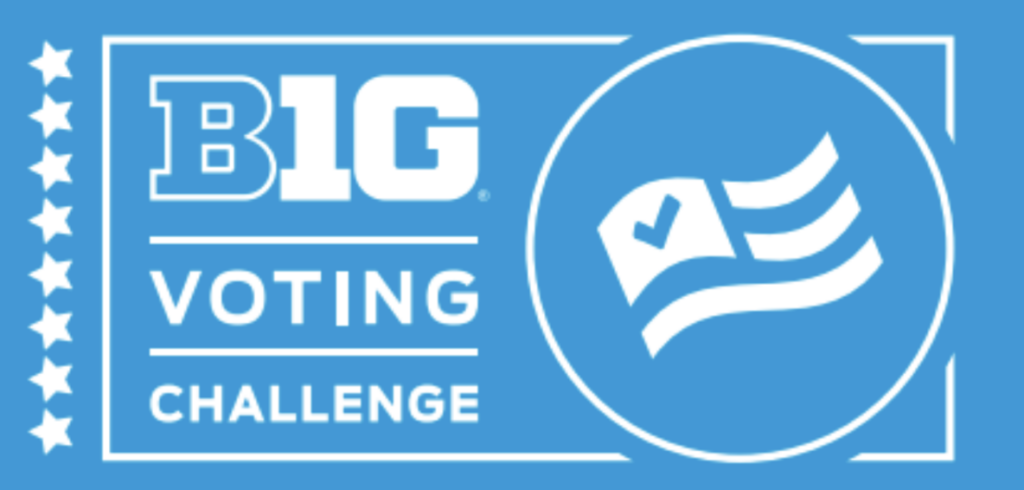
TOP STRATEGIES/INITIATIVES TO INCREASE REGISTRATION & TURNOUT
Statewide Policies and Resources
- State ID rules and helpline for Indiana.
High school Initiatives
- Indiana Kids’ Election is a statewide mock election for 6th through 12th grades as part of a state effort to engage students in elections.
- Perry Schools in Indianapolis and other Indiana schools provide resources to support student voting.
- Lack of initiatives focused on college and especially high school student registration and turnout.
- Pandemic restrictions and school closures made voting more challenging.
College and University initiatives
- SoS information for college students.
- 17 campuses participated in the ALL IN Campus Democracy Challenge and worked to increase student engagement, registration, and turnout on campuses across the state.
- University of Notre Dame increased the voter turnout rate 18.1% to 71.4%.
- Indiana University South Bend has engaged the media and diverse campus and community groups to develop an ambitious voter registration and turnout action plan for 2022-23.
- IU Bloomington participates in the Big Ten Voting Challenge.
- INDIANA CAMPUS VOTER GUIDE
Other Factors and Initiatives
- LWV Indiana supports voter registration and turnout across the state, in schools and on the web.

This profile was prepared by Your Voice Matters, a nonpartisan initiative to increase registration of youth.
We welcome your feedback to improve this profile!
Iowa |
|||||||
|---|---|---|---|---|---|---|---|
2014 |
2016 |
2018 |
2020 |
2022 |
2024 |
||
Midterm |
General |
Midterm |
General |
Midterm |
General |
||
VOTER TURNOUT 18-29 |
24% | 43.50% | 36% | 59.10% | 29% | Frey* | |
VOTER TURNOUT 18-19 |
– | – | – | 51% | – | CIRCLE* | |
REGISTRATION RATE 18-24 |
43% | 48.30% | 46.30% | 65.20% | 51.30% | Census* | |
VOTER TURNOUT 18-24 |
19.70% | 35.50% | 30.90% | 60.50% | 22.80% | Census* | |
IOWA

22.80%
YOUTH TURNOUT
IOWA YOUTH VOTE

TOP STRATEGIES/INITIATIVES TO INCREASE REGISTRATION & TURNOUT
State and local efforts to facilitate voting – despite pandemic
- State of Iowa voting portal.
- How to vote in Iowa.
- State ID rules and helpline for Iowa.
- Nonpartisan information on issues and voting from the LWV of Iowa.
- Ames Public Library and the League of Women Voters on who can vote in Iowa.
- Meeting Iowa ID requirements for voting – student IDs are not accepted.
High school Initiatives
- The governor presents the Carrie Chapman Catt Award to high schools that register a large proportion of their seniors.
Find your high school!
- A person may vote if they are at least 17 and will be 18 years old on or before election day. In the case of primary elections, a person may vote in the primary if they will turn 18 on or before the corresponding regular election.
- Iowa’s high school standards for civics education are “inadequate.”.
College and University initiatives
- 16 campuses participated in ALL IN Campus Democracy Challenge.
- Grinnell (86.7% voter turnout), Kirkwood, and Simpson Colleges and Iowa State all won awards in 2020.
- Grinnell College’s action plan commits to “Help students navigate complexity of the Covid-era regarding their voting options — and — now — anti-voter suppression efforts.”
- Follow Univ of Iowa VoteHawk.
- IOWA CAMPUS VOTER GUIDE
OTHER INFLUENCES
- Ames Public Library and the League of Women Voters on who can vote in Iowa.
- Meeting Iowa ID requirements for voting – student IDs are not accepted.
- Grinnell College’s action plan commits to “Help students navigate complexity of the Covid-era regarding their voting options — and — now — anti-voter suppression efforts.”

This profile was prepared by Your Voice Matters, a nonpartisan initiative to increase registration of youth.
We welcome your feedback to improve this profile!
Kansas |
|||||||
|---|---|---|---|---|---|---|---|
2014 |
2016 |
2018 |
2020 |
2022 |
2024 |
||
Midterm |
General |
Midterm |
General |
Midterm |
General |
||
VOTER TURNOUT 18-29 |
18.40% | 38.10% | 38.80% | 55.40% | 35.30% | Frey* | |
VOTER TURNOUT 18-19 |
– | – | – | 45% | – | CIRCLE* | |
REGISTRATION RATE 18-24 |
37.50% | 46.70% | 58.10% | 56.50% | 50.70% | Census* | |
VOTER TURNOUT 18-24 |
13.80% | 33.80% | 35.40% | 48.40% | 27.70% | Census* | |
KANSAS

27.70%
YOUTH TURNOUT
KANSAS YOUTH VOTE
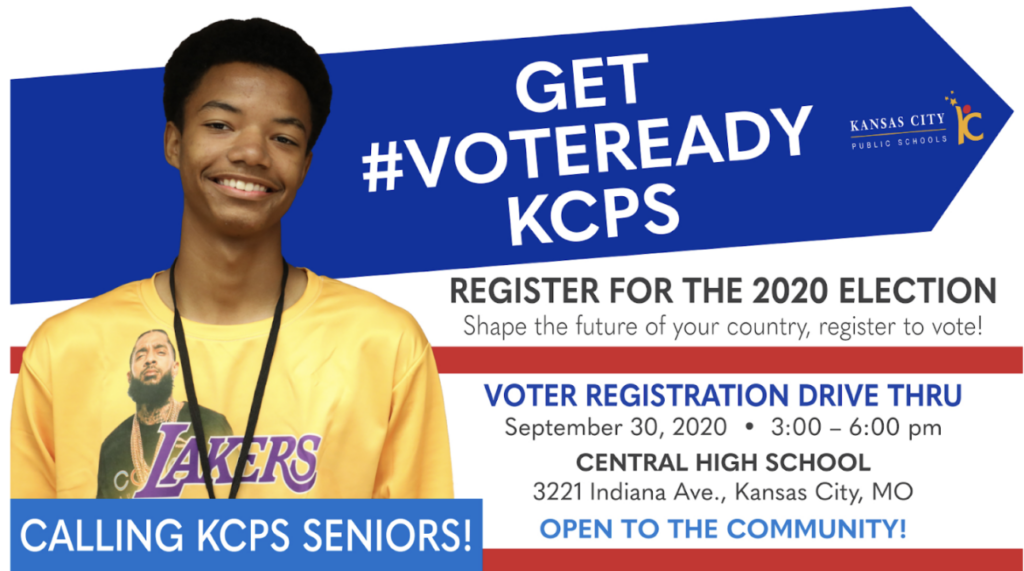
TOP STRATEGIES/INITIATIVES TO INCREASE REGISTRATION & TURNOUT
Statewide Policies and Resources
- Kansas Secretary of State portal and voter registration site (operated jointly with the Department of Revenue).
- Over 16? Be a paid poll worker on Election Day!
- State ID rules and helpline for Kansas voters.
- Kansas: Election deadlines, dates, and rules
High School Initiatives
- Young Kansas journalists.
- Kansas City Public School drive-through Voter Registration.
- League of Women Voters of Kansas portal for voting information.
- Kansas High School Democrats
- https://www.facebook.com/kansasyr
College and University initiatives
- Ten campuses participated in ALL IN Campus Democracy Challenge.
- Four campuses recognized for voter turnout rates 67 – 71.5%.
- University of Kansas Jayhawks turned out 71% of eligible voters in 2020.
- Kansas State voting portal
- KANSAS CAMPUS VOTER GUIDE
Other Factors and Initiatives
- Referendum on abortion drives early voting by students and political engagement.
- Voter registration in Kansas spiked after Roe reversal.

This profile was prepared by Your Voice Matters, a nonpartisan initiative to increase registration of youth.
We welcome your feedback to improve this profile!
Kentucky |
|||||||
|---|---|---|---|---|---|---|---|
2014 |
2016 |
2018 |
2020 |
2022 |
2024 |
||
Midterm |
General |
Midterm |
General |
Midterm |
General |
||
VOTER TURNOUT 18-29 |
30.70% | 54.40% | 29.10% | 55.90% | 32.50% | Frey* | |
VOTER TURNOUT 18-19 |
– | – | – | – | – | CIRCLE* | |
VOTER REGISTRATION 18-24 |
52.30% | 61.50% | 52.20% | 61.30% | 49.70% | Census* | |
VOTER TURNOUT 18-24 |
23.40% | 51.10% | 22.90% | 55.80% | 32.70% | Census* | |
KENTUCKY

32.70%
YOUTH TURNOUT
KENTUCKY YOUTH VOTE
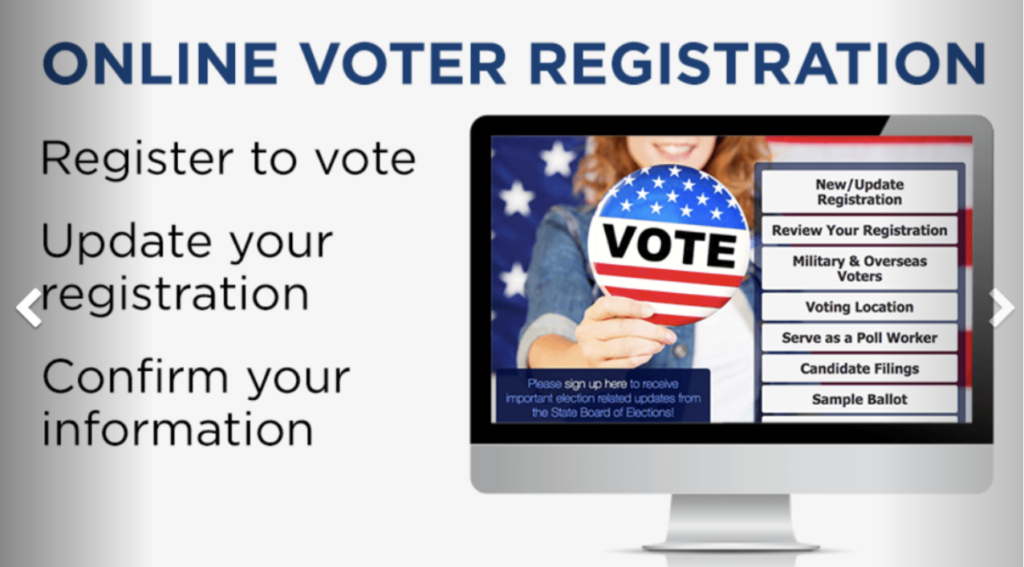
TOP STRATEGIES/INITIATIVES TO INCREASE REGISTRATION & TURNOUT
Statewide Policies and Resources
- Board of Elections voting portal.
- Online voter registration. Registration deadlines tend to be early.
- State ID rules and helpline for Kentucky voters.
- Video on requirements for photo IDs.
- Kentucky: Election deadlines, dates, and rules
High school Initiatives
- The Secretary of State sponsors mock elections for elementary, middle, and high school students in years with Presidential elections.
- The Georgia Davis Powers Award, named after the first African-American and woman elected to the Kentucky State Senate, is given to Kentucky high schools that register to vote 75-100% of eligible seniors.
- Frederick Douglass Award given to Burgin Independent High School for registering 100% of graduating seniors.
College and University initiatives
- Voting guide for college students.
- 14 campuses participated in ALL IN Campus Democracy Challenge.
- University of Louisville had a voter turnout rate of 65.5% and won recognition with a Silver Medal. Student & faculty involved in comprehensive plan–including reminders to alumni to register and vote.
- Andrew Goodman Foundation’s Vote Everywhere ambassadors run voter registration drives on campuses.
- KENTUCKY CAMPUS VOTER GUIDE
Other Factors and Initiatives
- Kentucky YMCA Youth Association won national recognition for their work in civic engagement ( www.civvys.org).

This profile was prepared by Your Voice Matters, a nonpartisan initiative to increase registration of youth.
We welcome your feedback to improve this profile!
Louisiana |
|||||||
|---|---|---|---|---|---|---|---|
2014 |
2016 |
2018 |
2020 |
2022 |
2024 |
||
Midterm |
General |
Midterm |
General |
Midterm |
General |
||
VOTER TURNOUT 18-29 |
30.60% | 48.80% | 29.30% | 47.70% | 27.60% | Frey* | |
VOTER TURNOUT 18-19 |
– | – | – | 32% | – | CIRCLE* | |
REGISTRATION RATE 18-24 |
51.60% | 61.70% | 49.30% | 53.10% | 41.30% | Census* | |
VOTER TURNOUT 18-24 |
26.20% | 49.20% | 24% | 44.50% | 23.10% | Census* | |
LOUISIANA

23.10%
YOUTH TURNOUT
LOUISIANA YOUTH VOTE

TOP STRATEGIES/INITIATIVES TO INCREASE REGISTRATION & TURNOUT
Statewide Policies and Resources
- Geaux Vote is the Secretary of State’s clearinghouse for election and voting information for all Louisiana voters – including students, educators, the elderly, and individuals with disabilities.
- State ID rules and helpline for Louisiana.
- Louisiana: Election deadlines, dates, and rules
High school Initiatives
- Pre-registration from age 16. Early voting and absentee voting (with a reason).
- Tips for a successful high school voter registration drive.
- Louisiana legislature defeats bill to require high school principals to offer seniors an opportunity to register to vote.
College and University initiatives
- Five campuses in Louisiana participated in the ALL IN Campus Democracy Challenge.
- Louisiana State University reached 64.7% voter turnout in 2020.
- Dillard University joined ALL IN in 2021 with a vision and plan to institutionalize voter education and civic engagement on campus and the community.
- Racial justice, women’s reproductive health, education participated in ALL IN Campus Democracy Challenge and was able to achieve a 63% voting rate of eligible students with increases among all races and ethnic groups. In-person voting declined while other methods increased.
- LOUISIANA CAMPUS VOTER GUIDE

This profile was prepared by Your Voice Matters, a nonpartisan initiative to increase registration of youth.
We welcome your feedback to improve this profile!
Maine |
|||||||
|---|---|---|---|---|---|---|---|
2014 |
2016 |
2018 |
2020 |
2022 |
2024 |
||
Midterm |
General |
Midterm |
General |
Midterm |
General |
||
VOTER TURNOUT 18-29 |
31.50% | 53.60% | 35.90% | 65.20% | 44% | Frey* | |
VOTER TURNOUT 18-19 |
– | – | – | 49% | – | CIRCLE* | |
REGISTRATION RATE 18-24 |
49.40% | 61.70% | 51.50% | 64.60% | 49.70% | Census* | |
VOTER TURNOUT 18-24 |
30.20% | 48.80% | 29.20% | 61.40% | 32.60% | Census* | |
MAINE

32.60%
YOUTH TURNOUT
MAINE YOUTH VOTE
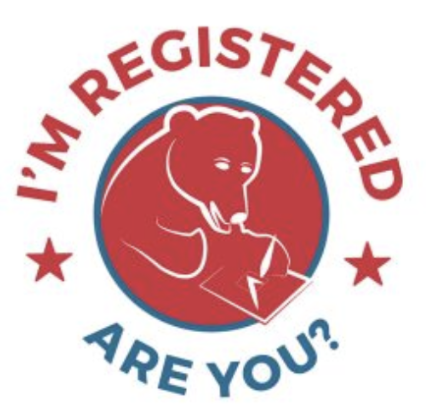
TOP STRATEGIES/INITIATIVES TO INCREASE REGISTRATION & TURNOUT
State efforts to facilitate youth voting
- Maine.gov voting portal.
- Voter registration at 17.
- COVID- and student-friendly voting laws, e.g. no-excuse absentee voting, acceptance of student IDs for registration and drop-off ballot boxes are facilitating access.
- State ID rules and helpline for Maine.
High school Initiatives
- Maine Students Vote has tools for teachers and students to get involved.
- League of Women Voters support first time and student voters.
College and University initiatives
- Ten campuses participated in Maine Campus Challenge; four campuses won Platinum Awards for voter turnout rates > 80%. With a turnout of 85.4% of undergraduate students, Bowdoin College tied with the College of the Atlantic for the highest undergraduate voter registration rates nationally in ALL IN Campus Democracy Challenge.
- Bowdoin documented its lessons learned to develop a comprehensive plan for the 2022 elections.
- MAINE CAMPUS VOTER GUIDE
CHALLENGES FACED BY YOUNG VOTERS
- Pandemic-related closings.
OTHER INFLUENCES
- Maine’s overall adult turnout in 2020 was about the same as 2018 while youth turnout went up by 12%.

This profile was prepared by Your Voice Matters, a nonpartisan initiative to increase registration of youth.
We welcome your feedback to improve this profile!
Maryland |
|||||||
|---|---|---|---|---|---|---|---|
2014 |
2016 |
2018 |
2020 |
2022 |
2024 |
||
Midterm |
General |
Midterm |
General |
Midterm |
General |
||
VOTER TURNOUT 18-29 |
26.60% | 55% | 37.10% | 68% | 29.90% | Frey* | |
VOTER TURNOUT 18-19 |
– | – | – | – | – | CIRCLE* | |
REGISTRATION RAGE 18-24 |
42.90% | 59.70% | 54.20% | 72% | 55.70% | Census* | |
VOTER TURNOUT 18-24 |
21.70% | 48% | 33.70% | 65.40% | 23.50% | Census* | |
MARYLAND

23.50%
YOUTH TURNOUT
MARYLAND YOUTH VOTE

TOP STRATEGIES/INITIATIVES TO INCREASE REGISTRATION & TURNOUT OF YOUNG VOTERS
State Policies and Resources
- New laws expand early voting, mail-in voting, and drop-boxes across the state.
- Same-day registration and voting available.
- Pre-registration from 16.
- State ID rules and helpline for Maryland.
High school Initiatives
- Montgomery County Future Vote recruits high school students to register their peers, serve as Election Workers, and receive a stipend or Student Service Learning hours.
- Maryland General Assembly is considering legislation to recognize high schools with seals of Civic Excellence.
- Maryland LWV voter registration site. Trained volunteers actively promote voter registration and participation in schools and online.
- Maryland student combats gun violence with Students Demand Action.
College and University initiatives
- Maryland Student and Military Voter Empowerment Act includes measures to encourage and facilitate registration and voting by college students in Maryland.
- State website for college and university voters.
- 25 Maryland campuses participated in ALL IN Campus Democracy Challenge.
- Loyola University won Platinum Award with 80% of eligible voters turning out in 2020 —up 32.5% over 2016.
- Towson tied for the best plan nationally – a plan driven by departments, students, and partners.
- NSLVE data critical to setting goals and tracking and evaluating results. 2022 data not yet available.
- MARYLAND CAMPUS VOTER GUIDE
OTHER FACTORS AND INFLUENCES

This profile was prepared by Your Voice Matters, a nonpartisan initiative to increase registration of youth.
We welcome your feedback to improve this profile!
Massachusetts |
|||||||
|---|---|---|---|---|---|---|---|
2014 |
2016 |
2018 |
2020 |
2022 |
2024 |
||
Midterm |
General |
Midterm |
General |
Midterm |
General |
||
VOTER TURNOUT 18-29 |
22.20% | 48.80% | 37.70% | 58.40% | 35.30% | Frey* | |
VOTER TURNOUT 18-19 |
– | – | – | 42% | – | CIRCLE* | |
REGISTRATION RATE 18-24 |
40.40% | 50% | 37.30% | 54% | 48.30% | Census* | |
VOTER TURNOUT 18-24 |
18.50% | 39.90% | 29.30% | 46.10% | 27.80% | Census* | |
MASSACHUSETTS

27.80%
YOUTH TURNOUT
MASSACHUSETTS YOUTH VOTE
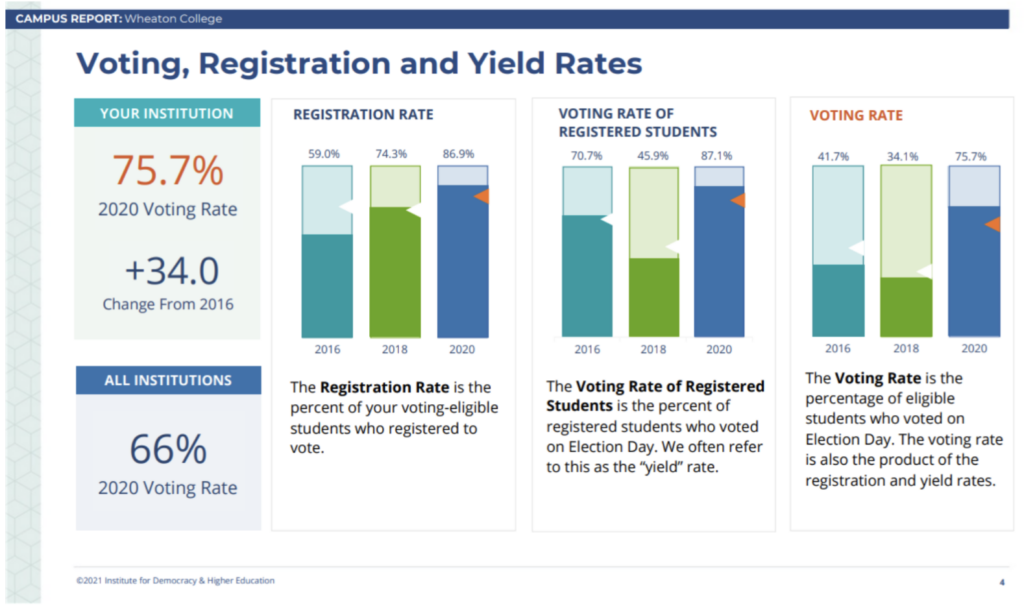
TOP STRATEGIES/INITIATIVES TO INCREASE REGISTRATION & TURNOUT
State Initiatives and Resources
- Secretary of the Commonwealth of Massachusetts voting portal and online voter registration.
- State ID rules and helpline for Massachusetts.
- Massachusetts: Election deadlines, dates, and rules
High school Initiatives
- Pre-register at 16, register at 18. How?
- Massachusetts LWV showcases high school civics initiatives.
- Needham High School chapter of the League of Women Voters registers voters.
College and University initiatives
- 46 campuses are participating in ALL IN Campus Democracy Challenge. Two campuses won a platinum seal award.
- Harvard Votes Challenge is led by students and seeks to engage all campuses and academic departments.
- Wheaton College won the “most improved rate” nationally – increasing 34% to 75.7% (see graph above),
- Directions for student registration and voting from U Mass.
- MASSACHUSETTS CAMPUS VOTER GUIDE
Other Factors and Initiatives
- Massachusetts is the home to CIRCLE, the Institute for Democracy and Higher Education, and NSLVE – all committed to young voters and located at Tufts University.
- A national poll by the Harvard Kennedy School documented a growing skepticism about the impact of voting and whether politics has tangible results.

This profile was prepared by Your Voice Matters, a nonpartisan initiative to increase registration of youth.
We welcome your feedback to improve this profile!
Michigan |
|||||||
|---|---|---|---|---|---|---|---|
2014 |
2016 |
2018 |
2020 |
2022 |
2024 |
||
Midterm |
General |
Midterm |
General |
Midterm |
General |
||
VOTER TURNOUT 18-29 |
21.10 | 42.30 | 37.10 | 56.40 | 48.60 | Frey* | |
VOTER TURNOUT 18-19 |
– | – | – | 50 | – | CIRCLE* | |
VOTER TURNOUT 18-24 |
18.30 | 36.10 | 33.20 | 50.30 | 44.90 | Census* | |
REGISTRATION RATE 18-24 |
48.90 | 53.10 | 54.10 | 58.50 | 64.30 | Census* | |
MICHIGAN

44.90%
YOUTH TURNOUT
MICHIGAN YOUTH VOTE
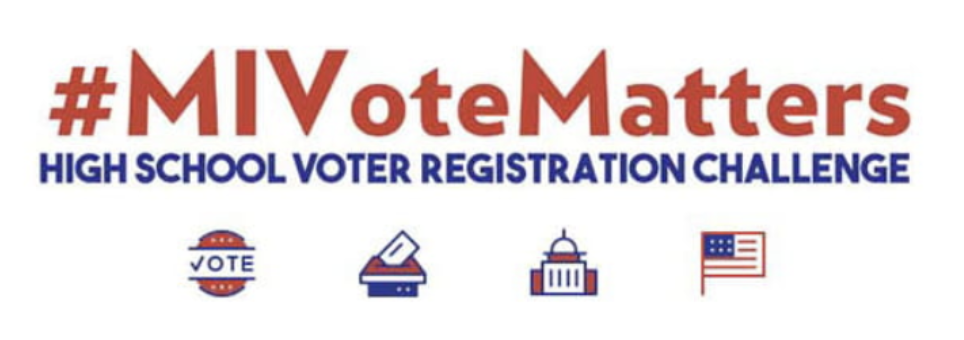
TOP STRATEGIES/INITIATIVES TO INCREASE REGISTRATION & TURNOUT OF YOUNG VOTERS
State and local efforts to facilitate youth voting
- Michigan Secretary of State site.
- Information for students in Michigan: “you drive at age 16, vote at 18, and must renew your license or ID in person at 21.”
- State ID rules and helpline for Michigan voters.
- Promote the Vote MI is a coalition of nonpartisan organizations promoting voting reforms that “work for all of us.”
- Michigan – with 37% ranks as the state with the highest turnout of young voters (18-29) in 2022 according to CIRCLE, 48.6% according to Frey’s analysis of Census data.
High school Initiatives
- MI Vote Matters is a high school voter registration program led by the Secretary of State in partnership with nonpartisan civic engagement organizations. (2022 Winners)
Find your high school!
- High school student IDs can be used for voter registration.
- LWV supports high school voter registration including in Washtenaw County and supports registration at high school graduation practice (add link to clip from June program).
College and University initiatives
- 36 campuses participated in ALL IN Campus Democracy Challenge; Kalamazoo College won a Platinum Seal with a turnout rate of 83.7% in 2020. 2022 results available in November 2023.
- University of Michigan and Michigan State participated in the Big Ten Voting Challenge. Michigan incorporated TurboVote into Wolverine Access, their student portal.
- The Secretary of State recognized six winners of the Michigan Collegiate Voting Challenge for their success increasing voter participation and engagement in 2020.
- Voting rules are complex especially for students who are out of state.
- Digital tactics such as texts, social media and phone banking encouraged peers to register and turn out to vote.
- MICHIGAN CAMPUS VOTER GUIDE
Other Factors and Resources
- The death of George Floyd was followed by mass protests in Michigan and in nearby Minnesota.
- Because Michigan was a battleground state, there was a high level of media coverage of Michigan voters of all ages.
- COVID influenced 2022 registration and turnout in multiple ways.

This profile was prepared by Your Voice Matters, a nonpartisan initiative to increase registration of youth.
We welcome your feedback to improve this profile!
Minnesota |
|||||||
|---|---|---|---|---|---|---|---|
2014 |
2016 |
2018 |
2020 |
2022 |
2024 |
||
Midterm |
General |
Midterm |
General |
Midterm |
General |
||
VOTER TURNOUT 18-29 |
27.50% | 55.80% | 47.50% | 66.10% | 40.10% | Frey* | |
VOTER TURNOUT 18-19 |
– | – | – | 60% | – | CIRCLE* | |
REGISTRATION RATE 18-24 |
38.40% | 56.70% | 47.80% | 72% | 52.30% | Census* | |
VOTER TURNOUT 18-24 |
20.90% | 49.60% | 39.90% | 67.50% | 34.40% | Census* | |
MINNESOTA

34.40%
YOUTH TURNOUT
MINNESOTA YOUTH VOTE
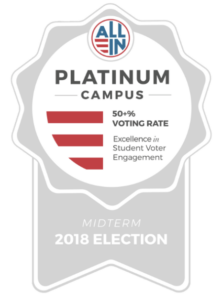
TOP STRATEGIES/INITIATIVES TO INCREASE REGISTRATION & TURNOUT
State Policies and Resources
- MNVotes.org provided information about voting and tools like sample ballots by MN address.
- Long election season – voting starting in September.
- State ID rules and helpline for Minnesota.
- State website on how elections work.
- Facts and Fiction about how elections are run.
- Minnesota: Election deadlines, dates, and rules
High school Initiatives
- Register from 16, vote at 18.
- Secretary of State holds conversations with high school voters.
- Student-friendly voting laws, e.g. same day registration and no excuse absentee voting.
- Support for civics education and engagement.
- Opportunities for 16-year-olds to be paid poll workers.
College and University initiatives
- Voting for college students
- Strong campus leadership by faculty, students, and athletes on campuses statewide.
- 42 campuses participated in ALL IN Campus Democracy Challenge; seven campuses won Platinum Awards for voter turnout rates > 80%.
- St. Olaf College won award for highest voter turnout in the U.S.—87.6% of eligible voters.
- Gustavus Adolphus College won one of the best action plans in 2020.
- MINNESOTA CAMPUS VOTER GUIDE
Other Factors and Resources
- LWV MN and Minnesota Youth Council support youth voting
- Racial disparities persisted in voting patterns.
- Minnesota’s overall adult turnout in 2020 – 79.4% – was the highest in the US (Pew Research).

This profile was prepared by Your Voice Matters, a nonpartisan initiative to increase registration of youth.
We welcome your feedback to improve this profile!
Mississippi |
|||||||
|---|---|---|---|---|---|---|---|
2014 |
2016 |
2018 |
2020 |
2022 |
2024 |
||
Midterm |
General |
Midterm |
General |
Midterm |
General |
||
VOTER TURNOUT 18-29 |
26.40% | 49.80% | 30.20% | 54.70% | 26.80% | Frey* | |
VOTER TURNOUT 18-19 |
– | – | – | – | – | Circle* | |
VOTER REGISTRATION 18-24 |
66.60% | 60% | 45.70% | 61.90% | 45% | Census* | |
VOTER TURNOUT 18-24 |
26.10% | 46.10% | 26.70% | 42.30% | 23.90% | Census* | |
MISSISSIPPI

23.90%
YOUTH TURNOUT
MISSISSIPPI YOUTH VOTE

TOP STRATEGIES/INITIATIVES TO INCREASE REGISTRATION & TURNOUT
Statewide Policies and Resources
- Last minute changes in polling stations in Jackson, MS
- Mississippi Secretary of State Y’all Vote Website
- Mail-in registration and information line: 1-800-829-6786
- Mississippi: Election deadlines, dates, and rules
High school Initiatives
- Promote the Vote is the theme of Mississippi’s K-12 voter education program.
- Drive-through voter registration for eligible students in seven Jackson, MS high schools.
College and University initiatives
- Voting as a college student in Mississippi
- Mississippi Votes is an NGO founded in 2016 by college students dedicated to creating a culture of civic engagement across the state.
- Seven campuses participated in the ALL IN Campus Democracy Challenge.
- University of Mississippi increased voter turnout to 53.4% in 2020 – up 25% from 2016!
- Tougaloo College, in their first external evaluation, reached 56.5% turnout and a bronze award!
- MISSISSIPPI CAMPUS VOTER GUIDE
Other Factors and Initiatives
- Challenges posed by the pandemic were addressed by online and innovative approaches such as the Voter Engagement Project – Delta Foundation.
- Multiple legislated barriers make registration and voting difficult in Mississippi.

This profile was prepared by Your Voice Matters, a nonpartisan initiative to increase registration of youth.
We welcome your feedback to improve this profile!
Missouri |
|||||||
|---|---|---|---|---|---|---|---|
2014 |
2016 |
2018 |
2020 |
2022 |
2024 |
||
Midterm |
General |
Midterm |
General |
Midterm |
General |
||
VOTER TURNOUT 18-29 |
15.30% | 50% | 43% | 56.60% | 29.70% | Frey* | |
VOTER TURNOUT 18-19 |
– | – | – | 19.90% | – | CIRCLE* | |
REGISTRATION RATE 18-24 |
49% | 57.70% | 58.80% | 65% | 60.10% | Census* | |
VOTER TURNOUT 18-24 |
14.50% | 45.90% | 38.70% | 53.30% | 26.70% | Census* | |
MISSOURI

26.70%
YOUTH TURNOUT
MISSOURI YOUTH VOTE

TOP STRATEGIES/INITIATIVES TO INCREASE REGISTRATION & TURNOUT
Statewide Policies and Resources
- Secretary of State elections portal supports voter registration, conduct and security of elections.
- State ID rules and helpline for Missouri voters.
- Missouri: Election deadlines, dates, and rules
High school Initiatives
- Springfield Public Schools, NAACP, and League of Women Voters are collaborating to register first time voters.
- vote411.org/missouri is sponsored by the Missouri League of Women Voters.
College and University initiatives
- 12 campuses participated in the ALL IN Campus Democracy Challenge.
- 62.6% of eligible University of Missouri (Mizzou) students voted in 2020.
- Washington University in St. Louis received a Gold Seal for 70.8% turnout.
- College IDs can be used for registration.
- MISSOURI CAMPUS VOTER GUIDE
Other Factors and Initiatives
- Multiple rules pose challenges for new voters, for example requiring an excuse (not COVID) to vote by mail.

This profile was prepared by Your Voice Matters, a nonpartisan initiative to increase registration of youth.
We welcome your feedback to improve this profile!
Montana |
|||||||
|---|---|---|---|---|---|---|---|
2014 |
2016 |
2018 |
2020 |
2022 |
2024 |
||
Midterm |
General |
Midterm |
General |
Midterm |
General |
||
VOTER TURNOUT 18-29 |
22.90% | 43.30% | 41.30% | 58.90% | 32.10% | Frey* | |
VOTER TURNOUT 18-19 |
– | – | – | 52% | – | CIRCLE* | |
REGISTRATION RATE 18-24 |
42.80% | – | 49.70% | 65% | 49.90% | Census* | |
VOTER TURNOUT 18-24 |
20.70% | – | 38.30% | 56.20% | 31.30% | Census* | |
MONTANA

31.30%
YOUTH TURNOUT
MONTANA YOUTH VOTE
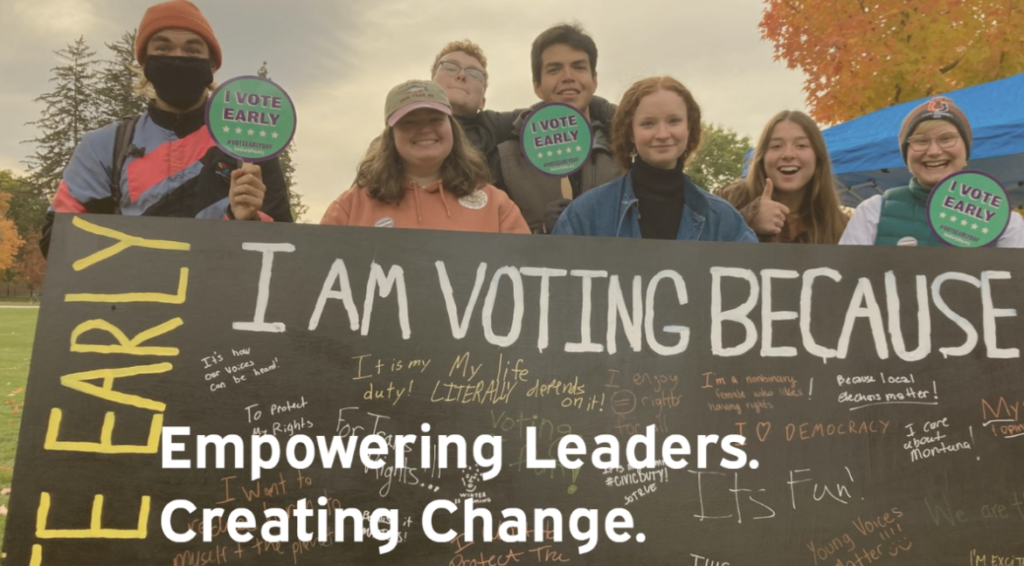
TOP STRATEGIES/INITIATIVES TO INCREASE REGISTRATION & TURNOUT
Statewide Policies and Resources
- The Secretary of State provides on-line resources on civic engagement and voting.
- State ID rules and helpline for Montana.
- Montana: Election deadlines, dates, and rules
High school Initiatives
- Civics Montana hosts a statewide election for K-6 and 7-12 students each cycle and provides tools for teachers and students to get involved.
College and University initiatives
- Six campuses participated in ALL IN Campus Democracy Challenge.
- Montana State University increased turnout in 2020 to 76.2% including 55% turnout of its Native American students.
- University of Montana is designated as a Voter Friendly Campus.
- MONTANA CAMPUS VOTER GUIDE
Other Factors and Initiatives
- MontPIRG has worked for 40 years as a “student directed and funded non-partisan organization dedicated to affecting tangible, positive change through educating and empowering the next generation of civic leaders.”

This profile was prepared by Your Voice Matters, a nonpartisan initiative to increase registration of youth.
We welcome your feedback to improve this profile!
Nebraska |
|||||||
|---|---|---|---|---|---|---|---|
2014 |
2016 |
2018 |
2020 |
2022 |
2024 |
||
Midterm |
General |
Midterm |
General |
Midterm |
General |
||
VOTER TURNOUT 18-29 |
18.40% | 53.80% | 35.30% | 48.20% | 21.70% | Frey* | |
VOTER TURNOUT 18-19 |
– | – | – | 49% | – | CIRCLE* | |
REGISTRATION RATE 18-24 |
42.30% | 60.50% | 40.10% | 47.50% | 34% | Census* | |
VOTER TURNOUT 18-24 |
14.40% | 50.10% | 29.20% | 40.10% | 12.90% | Census* | |
NEBRASKA

12.90%
YOUTH TURNOUT
NEBRASKA YOUTH VOTE
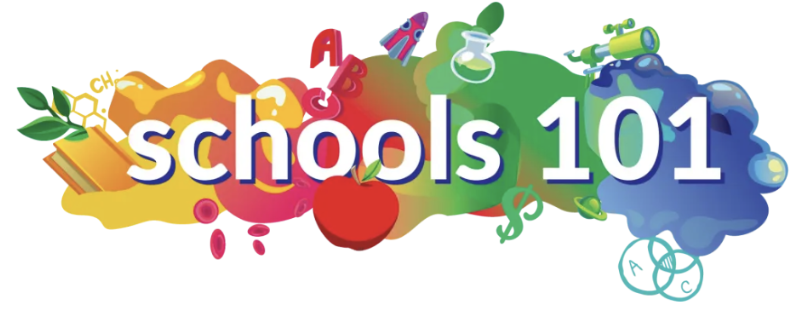
TOP STRATEGIES/INITIATIVES TO INCREASE REGISTRATION & TURNOUT
Statewide Policies and Resources
- Nebraska Secretary of State official voting site.
- Guidance for Nebraskan and out-of-state students.
- State ID rules and helpline for Nebraska.
- Nebraska: Election deadlines, dates, and rules
- Nebraska: Election deadlines, dates, and rules
High school Initiatives
- League of Women Voters supports voting and Schools 101 working with Nebraska schools.
College and University initiatives
- Five campuses participated in ALL IN Campus Democracy Challenge.
- University of Nebraska registered 91.6% of eligible students and turned out more than 15,000 voters, 74.3% of eligible voters.
- Huskers Vote portal.
- NEBRASKA CAMPUS VOTER GUIDE

This profile was prepared by Your Voice Matters, a nonpartisan initiative to increase registration of youth.
We welcome your feedback to improve this profile!
Nevada |
|||||||
|---|---|---|---|---|---|---|---|
2014 |
2016 |
2018 |
2020 |
2022 |
2024 |
||
Midterm |
General |
Midterm |
General |
Midterm |
General |
||
VOTER TURNOUT 18-29 |
20% | 44.20% | 29.70% | 45.60% | 28.90% | Frey* | |
VOTER TURNOUT 18-19 |
– | – | – | 61% | – | CIRCLE* | |
REGISTRATION RATE 18-24 |
33.90% | 47.30% | 45.70% | 38.70% | 41% | Census* | |
VOTER TURNOUT 18-24 |
17.30% | 37.60% | 29.70% | 33.90% | 21.20% | Census* | |
NEVADA

21.20%
YOUTH TURNOUT
NEVADA YOUTH VOTE
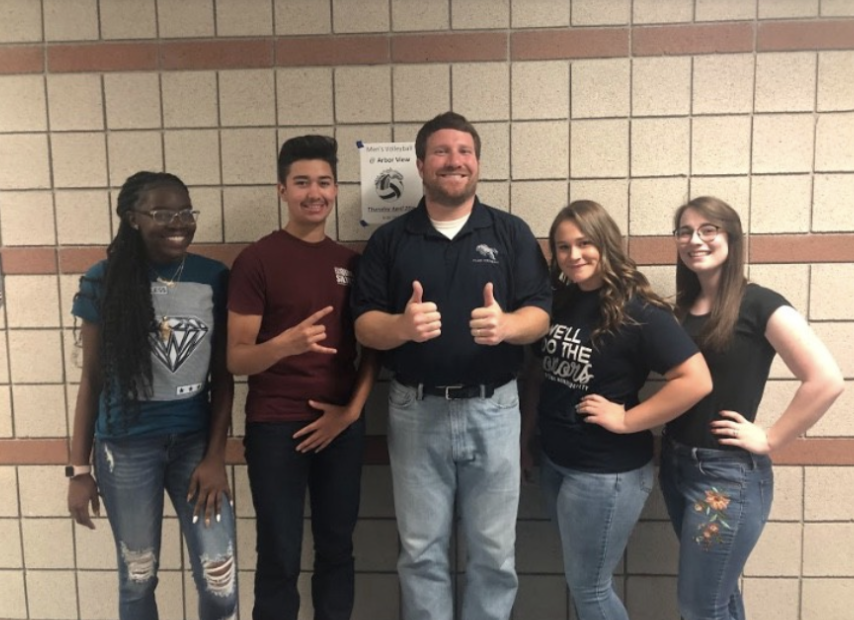
TOP STRATEGIES/INITIATIVES TO INCREASE REGISTRATION & TURNOUT
State Policies and Resources
- Online registration and voter information is available on the Secretary of State’s official website.
- State ID rules and helpline for Nevada.
- Nevada: Election deadlines, dates, and rules
High school Initiatives
- The Secretary of State of Nevada presents the Helen J. Stewart Award to high schools that have registered at least 85% of eligible students.
Find your high school!
“The future is in the palm of (our) hands, every time we go to the ballot, whether it’s in a week or 30 years down the road. . . No matter what party you identify with, if any, your opinions need to be heard. You may be sitting and thinking that your vote won’t make a difference but adding up every individual who believes in a cause can turn into millions of supporters. As the next generation of this country, we have a responsibility to show up and vote. Young people have the smallest turnout when it comes to voting but we can change that. What you may consider irrelevant or unnecessary now could end up having a bigger impact on your future than you think.”
–Battle Mountain High School student Aydan Samuelson
College and University initiatives
- Three campuses participated in the ALL IN Campus Democracy Challenge.
- University of Nevada Reno increased registration to 86%, voter turnout to 72.1% and prepared an ambitious action plan for 2022.
- NEVADA CAMPUS VOTER GUIDE
NGOs supporting youth vote
- Next Gen Nevada is working to register and turnout young Nevada voters.
- Students at the University of Nevada reported that the major barriers to voting were “not knowing enough about the issues” and needing more information about “how to use an absentee ballot and “where to vote.”

This profile was prepared by Your Voice Matters, a nonpartisan initiative to increase registration of youth.
We welcome your feedback to improve this profile!
New Hampshire |
|||||||
|---|---|---|---|---|---|---|---|
2014 |
2016 |
2018 |
2020 |
2022 |
2024 |
||
Midterm |
General |
Midterm |
General |
Midterm |
General |
||
VOTER TURNOUT 18-29 |
19% | 56% | 40.10% | 62.90% | 35.30% | Frey* | |
VOTER TURNOUT 18-19 |
– | – | – | – | – | CIRCLE* | |
REGISTRATION RATE 18-24 |
46.70% | – | 53.40% | 67.70% | 43.50% | Census* | |
VOTER TURNOUT 18-24 |
19% | – | 34.40% | 61.10% | 29.50% | Census* | |
NEW HAMPSHIRE

29.50%
YOUTH TURNOUT
NEW HAMPSHIRE YOUTH VOTE
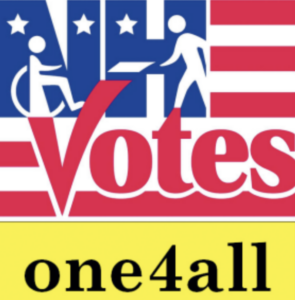
TOP STRATEGIES/INITIATIVES TO INCREASE REGISTRATION & TURNOUT
State Policies and Resources
- New Hampshire Secretary of State registration guide.
- How to vote in New Hampshire.
- Ballotpedia provides easily accessible information for what is on each ballot.
- State ID rules and helpline for New Hampshire.
- New Hampshire: Election deadlines, dates, and rules
High school Initiatives
- List of NH public and private high schools with IDs that are approved to be used for voting.
College and University initiatives
- Four campuses joined ALL IN Campus Democracy Challenge.
- Dartmouth College: Dartmouth launched a Dartmouth Votes Coalition and website and achieved a 79.1% voting turnout rate in 2020.
- Keene State College
- Saint Anselm College
- Southern New Hampshire University
- Potential costs associated with voting have potential to suppress voting by college students in New Hampshire.
- List of NH colleges and universities with IDs that are approved to use for voting
- Basic voting information on University of New Hampshire website.
Other Factors and Initiatives
- Environment and abortion.
- Complex laws and requirements for voting

This profile was prepared by Your Voice Matters, a nonpartisan initiative to increase registration of youth.
We welcome your feedback to improve this profile!
New Jersey |
|||||||
|---|---|---|---|---|---|---|---|
2014 |
2016 |
2018 |
2020 |
2022 |
2024 |
||
Midterm |
General |
Midterm |
General |
Midterm |
General |
||
VOTER TURNOUT 18-29 |
14.70% | 42.40% | 37.80% | 72.60% | 28.20% | Frey* | |
VOTER TURNOUT 18-19 |
– | – | – | 65% | – | CIRCLE* | |
REGISTRATION RATE 18-24 |
42.50% | 49.40% | 43.10% | 78.30% | 55.40% | Census* | |
VOTER TURNOUT 18-24 |
12.90% | 35.90% | 29.20% | 67.90% | 27% | Census* | |
NEW JERSEY

27.00%
YOUTH TURNOUT
NEW JERSEY YOUTH VOTE
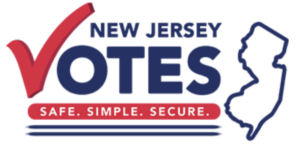
TOP STRATEGIES/INITIATIVES TO INCREASE REGISTRATION & TURNOUT
State Initiatives and Resources
- Registration from 17–vote at 18.
- 86% voted by mail in 2020, versus 7% in 2016.
- During the pandemic, ballots were mailed to all registered voters.
- NJ Portal for student voters.
- State ID rules and helpline for New Jersey voters.
- New Jersey: Election deadlines, dates, and rules
High school Initiatives
- NJ’s High School Voter Registration Law requires all schools to “provide eligible voters registration materials, a summary of voter registration eligibility requirements, materials describing the role of a citizen, and materials articulating the importance of voting to all eligible high school students.”
- Newark, NJ provides high school voting information on line.
- NJ sophomore forms Livingston High School chapter of League of Women Voters.
College and University initiatives
- 27 NJ campuses participated in ALL IN Campus Democracy Challenge in 2020 (2022 available November 2023).
- In 2020, the College of New Jersey had the highest turnout at 83.1% – a 30% increase from 2018.
- Colleges across the state compete to register the most students in the New Jersey Ballot Bowl.
- NSLVE data critical to setting goals and tracking and evaluating results.
- Students can participate in a mock election for NJ can
- New Jersey Youth Leadership Corps competitive Outward Bound program.
- NEW JERSEY CAMPUS VOTER GUIDE
OTHER INFLUENCES
- New Jersey’s overall adult turnout – 78.3% – was one of the highest in the US.

This profile was prepared by Your Voice Matters, a nonpartisan initiative to increase registration of youth.
We welcome your feedback to improve this profile!
New Mexico |
|||||||
|---|---|---|---|---|---|---|---|
2014 |
2016 |
2018 |
2020 |
2022 |
2024 |
||
Midterm |
General |
Midterm |
General |
Midterm |
General |
||
VOTER TURNOUT 18-29 |
16.40% | 38.90% | 30.60% | 45.50% | 30.20% | Frey* | |
VOTER TURNOUT 18-19 |
– | – | – | 32% | – | CIRCLE* | |
REGISTRATION RATE 18-24 |
25.70% | 49.70% | 43.60% | 48% | 44.80% | Census* | |
VOTER TURNOUT 18-24 |
11.60% | 37.80% | 27.40% | 41.30% | 32% | Census* | |
NEW MEXICO

32.00%
YOUTH TURNOUT
NEW MEXICO YOUTH VOTE
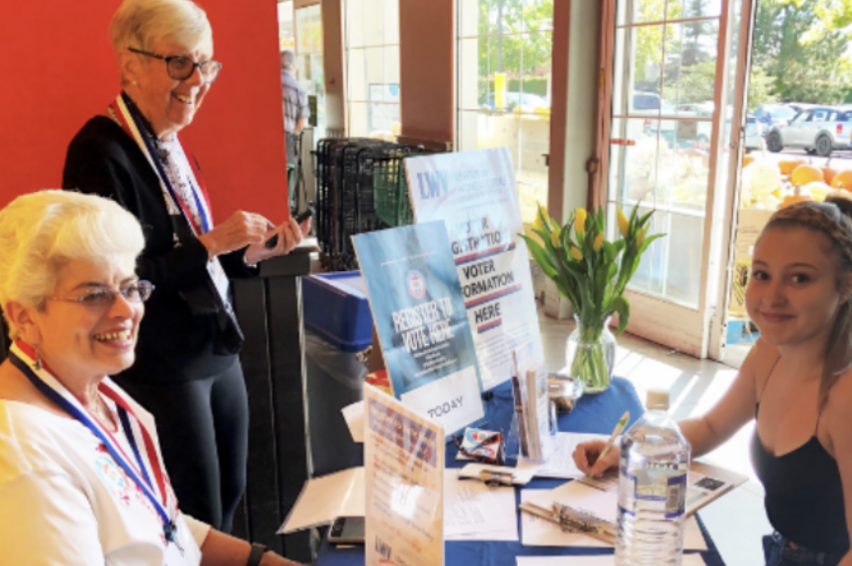
TOP STRATEGIES/INITIATIVES TO INCREASE REGISTRATION & TURNOUT
State Policies and Initiatives
- Online registration and voter information is available on the Secretary of State’s elections portal and online voter registration website.
- New Mexico: Election deadlines, dates, and rules
High school Initiatives
- LWV of Santa Fe trained high school students as Voter Registration Agents to register their peers.
- The Civics Center provides resources for schools to organize a registration drive and participate in High School Registration Week, September 19-23, 2022.
- New Mexico high schools.
College and University initiatives
- Two campuses participated in the ALL IN Campus Democracy Challenge.
- The University of New Mexico achieved 70.7% turnout in 2020.
- New Mexico State provided a comprehensive student voting portal.
- Campus Vote provides registration information for out of state students.
- NEW MEXICO CAMPUS VOTER GUIDE
Other Factors and Initiatives

This profile was prepared by Your Voice Matters, a nonpartisan initiative to increase registration of youth.
We welcome your feedback to improve this profile!
New York |
|||||||
|---|---|---|---|---|---|---|---|
2014 |
2016 |
2018 |
2020 |
2022 |
2024 |
||
Midterm |
General |
Midterm |
General |
Midterm |
General |
||
VOTER TURNOUT 18-29 |
15.60% | 42.70% | 35.20% | 53.50% | 26.80% | Frey* | |
VOTER TURNOUT 18-19 |
– | – | – | 39% | – | CIRCLE* | |
REGISTRATION RATE 18-24 |
37.40% | 47.40% | 41.70% | 50.60% | 39.80% | Census* | |
VOTER TURNOUT 18-24 |
13.20% | 34.60% | 28.60% | 43.30% | 20.70% | Census* | |
NEW YORK

20.70%
YOUTH TURNOUT
NEW YORK YOUTH VOTE
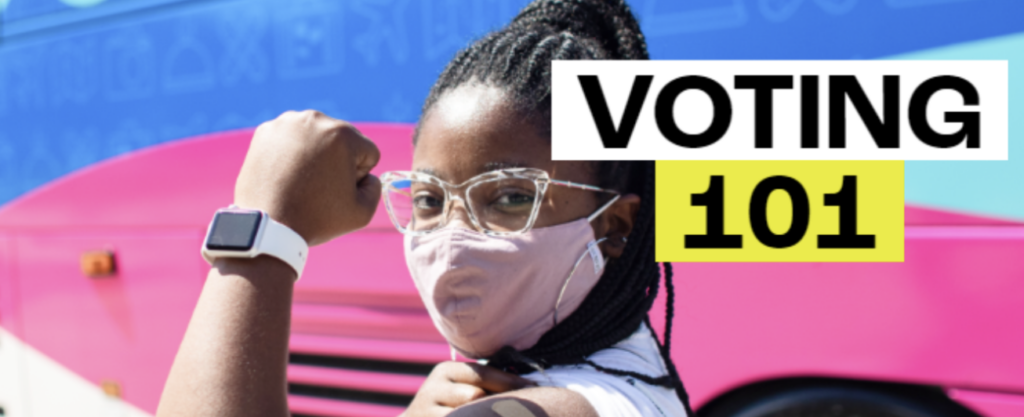
TOP STRATEGIES/INITIATIVES TO INCREASE REGISTRATION & TURNOUT
State Policies and Resources
- New York State Board of Election site.
- NYS DMV facilitates online registration with a driver’s license.
- Voter pre-registration starts at 16, vote at 18.
- New York: Election deadlines, dates, and rules
High school Initiatives
- NYC Campaign Finance Board sponsors Youth Programs to encourage youth engagement through peer-to-peer style education, partnership with CUNY, and We Power NYC Ambassadors.
- ID rules and helpline for New York voters.
- Civics week launched at Grover Cleveland High School in Ridgewood, Queens.
- NYC Student Registration Drive.
- High school websites include voting information and registration tools, for example Syosset High School.
- Let NY Vote is a coalition or grassroots activists and partners that is successfully advocating for voting rights reforms that benefit young voters (and others), for example: pre-registration at 16 and 17 and online registration. Legislation that would permit same day registration is “in progress.”
- Jennifer Wolfe of Oceanside advising When We All Vote’s My School Votes initiative.
College and University initiatives
- 65 NY campuses participated in ALL IN Campus Democracy Challenge; 2 campuses won Platinum Awards for voter turnout rates > 80%.
- 2020 New York Campus Voting Challenge Award Winners:
- Highest Voter Registration Award, 2-year Institution: Dutchess Community College
- Highest Voter Registration Award, 4-year Institution: Bard College
- Most Improved Voter Turnout Award, 2-year Institution: Dutchess Community College
- Most Improved Voter Turnout Award, 4-year Institution: Ithaca College
- Highest Voter Turnout Award, 2-year Institution: Dutchess Community College
- Highest Voter Turnout Award, 4-year Institution: Ithaca College (79.5% – an increase of 38% above 2016)
- Best Campus Democratic Engagement Action Plan Award, 2-year Institution: Westchester Community College
- Best Campus Democratic Engagement Action Plan Award, 4-year Institution: SUNY: Stony Brook University
- NEW YORK CAMPUS VOTER GUIDE
Other Factors and Initiatives
- Rock the Vote in New York.
- NYC Campaign Finance Board shifted to digital communications to give voters safe choices during the pandemic including a voter registration site created in partnership with TurboVote.
- New York requires voter registration 25 days before an election. This disproportionately affects young NY citizens.

This profile was prepared by Your Voice Matters, a nonpartisan initiative to increase registration of youth.
We welcome your feedback to improve this profile!
North Carolina |
|||||||
|---|---|---|---|---|---|---|---|
2014 |
2016 |
2018 |
2020 |
2022 |
2024 |
||
Midterm |
General |
Midterm |
General |
Midterm |
General |
||
VOTER TURNOUT 18-29 |
26% | 52.70% | 33.10% | 51.40% | 24.30% | Frey* | |
VOTER TURNOUT 18-19 |
– | – | – | 53% | – | CIRCLE* | |
REGISTRATION RATE 18-24 |
41.30% | 54.70% | 46.70% | 53.30% | 40.30% | Census* | |
VOTER TURNOUT 18-24 |
21.60% | 44.80% | 30.10% | 46.40% | 21.90% | Census* | |
NORTH CAROLINA

21.90%
YOUTH TURNOUT
NORTH CAROLINA YOUTH VOTE
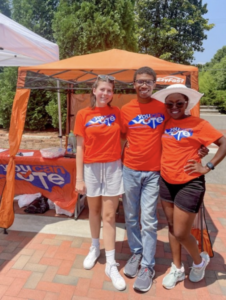
TOP STRATEGIES/INITIATIVES TO INCREASE REGISTRATION & TURNOUT
Statewide Policies and Resources
- North Carolina has on-line registration for NC DMV customers with a state issued photo ID.
- NC has no-excuse vote by mail and in 2020 created an email request portal.
High school Initiatives
- You Can Vote (YCV) supports all North Carolinians – especially high school and college students – to register, volunteer, and vote.
- First Vote NC helps high school students learn the mechanics of voting and participate in a simulated election with a view to prepare them for a lifetime of voting.
- Voter pre- registration starts at 16, vote at 18.
College and University initiatives
- Portal for North Carolina college students.
- Campuses across North Carolina are engaged in competitions to register and vote including the North Carolina Campus Challenge, facilitated in-state by You Can Vote and North Carolina Campus Engagement.
- You Can Vote provides the “boots on the ground” infrastructure for the NC Campus Challenge through education, training, and Get Out The Vote with partners including the NC Community College System, public and private colleges, and HBCUs across the state.
- League of Women Voters promotes civic education and voting through multiple NC chapters.
- The NC Campus Engagement state office fosters connections between campuses, shares best practice information and resources, recognizes outstanding work, and champions civic and community engagement in higher education.
- 31 campuses are participating in the national ALL IN Campus Democracy Challenge. Campuses such as UNC at Chapel Hill and North Carolina Agricultural and Technical State University have participated in ALL IN Campus Democracy Challenge over multiple election cycles.
- NORTH CAROLINA CAMPUS VOTER GUIDE
Other Factors and Resources
- North Carolina is a battleground state and has been on the front lines of voter suppression. Prior to the Shelby County decision, 40 out of 100 North Carolina counties were covered under Section 5 of the Voting Rights Act and were required to seek federal approval before making changes to their election laws. The Lawyers Committee NC
- Many students were off campus due to the pandemic.

This profile was prepared by Your Voice Matters, a nonpartisan initiative to increase registration of youth.
We welcome your feedback to improve this profile!
North Dakota |
|||||||
|---|---|---|---|---|---|---|---|
2014 |
2016 |
2018 |
2020 |
2022 |
2024 |
||
Midterm |
General |
Midterm |
General |
Midterm |
General |
||
VOTER TURNOUT 18-29 |
30% | 52.90% | 43.30% | 53.20% | 31.30% | Frey* | |
VOTER TURNOUT 18-19 |
– | – | – | – | – | CIRCLE* | |
REGISTRATION RATE 18-24 |
43.50% | 54.70% | – | – | 52.20% | Census* | |
VOTER TURNOUT 18-24 |
25.10% | 44.80% | – | – | 24.80% | Census* | |
NORTH DAKOTA

24.80%
YOUTH TURNOUT
NORTH DAKOTA YOUTH VOTE

TOP STRATEGIES/INITIATIVES TO INCREASE REGISTRATION & TURNOUT
Statewide Policies and Resources
- North Dakota does not require voter registration. See links below for requirements for voting.
- Vote North Dakota portal.
- Tribal ID and other voting information.
- Information for college students.
- State ID rules and helpline for North Dakota.
- North Dakota: Election deadlines, dates, and rules
High school Initiatives
- Civics test required to graduate from high school.
- Limited student-specific information on line.
College and University initiatives
- North Dakota State University joined the ALL IN Campus Democracy Challenge in 2016– only ND participant. No recent data available online.
- NORTH DAKOTA CAMPUS VOTER GUIDE
Other Factors and Initiatives

This profile was prepared by Your Voice Matters, a nonpartisan initiative to increase registration of youth.
We welcome your feedback to improve this profile!
Ohio |
|||||||
|---|---|---|---|---|---|---|---|
2014 |
2016 |
2018 |
2020 |
2022 |
2024 |
||
Midterm |
General |
Midterm |
General |
Midterm |
General |
||
VOTER TURNOUT 18-29 |
17.90% | 45.20% | 28.40% | 56.30% | 25.30% | Frey* | |
VOTER TURNOUT 18-19 |
– | – | – | 44% | – | CIRCLE* | |
VOTER REGISTRATION 18-24 |
42.80% | 53.60% | 48.70% | 59.20% | 43.60% | Census* | |
VOTER TURNOUT 18-24 |
12.40% | 39.60% | 21.90% | 51.80% | 18.70% | Census* | |
OHIO

18.70%
YOUTH TURNOUT
OHIO YOUTH VOTE

TOP STRATEGIES/INITIATIVES TO INCREASE REGISTRATION & TURNOUT
State efforts to facilitate youth voting
- Secretary of State voting portal.
- On-line registration and no-excuse absentee voting are permitted.
- State ID rules and helplines for Ohio young voters.
High school Initiatives
- Grads Vote Ohio. Ohio high schools receive a voter registration packet for all graduating seniors.
- Youth at the Booth.
College and University initiatives
- 33 campuses participated in ALL IN Campus Democracy Challenge ; 1 campus won Platinum Awards for voter turnout rates > 80%.
- Denison University won an award for the overall highest registration rate.
- Ohio State shifted to virtual efforts due to the pandemic, for example QR codes to access registration information, virtual workshops, and voter drop boxes.
- Ohio Student Association, a student led organization, sent more than a million texts to get young people “registered, informed, and out to vote.”
- OHIO CAMPUS VOTER GUIDE
CHALLENGES FACED BY YOUNG VOTERS
- Student IDs and out of state IDs are not acceptable for voting in Ohio.
TOP STRATEGIES/INITIATIVES TO INCREASE REGISTRATION & TURNOUT
State efforts to facilitate youth voting
- Secretary of State voting portal.
- On-line registration and no-excuse absentee voting are permitted.
- State ID rules and helplines for Ohio young voters.
High school Initiatives
- Grads Vote Ohio. Ohio high schools receive a voter registration packet for all graduating seniors.
- Youth at the Booth.
College and University initiatives
- 33 campuses participated in ALL IN Campus Democracy Challenge ; 1 campus won Platinum Awards for voter turnout rates > 80%.
- Denison University won an award for the overall highest registration rate.
- Ohio State shifted to virtual efforts due to the pandemic, for example QR codes to access registration information, virtual workshops, and voter drop boxes.
- Ohio Student Association, a student led organization, sent more than a million texts to get young people “registered, informed, and out to vote.”
- OHIO CAMPUS VOTER GUIDE
CHALLENGES FACED BY YOUNG VOTERS
- Student IDs and out of state IDs are not acceptable for voting in Ohio.

This profile was prepared by Your Voice Matters, a nonpartisan initiative to increase registration of youth.
We welcome your feedback to improve this profile!
Oklahoma |
|||||||
|---|---|---|---|---|---|---|---|
2014 |
2016 |
2018 |
2020 |
2022 |
2024 |
||
Midterm |
General |
Midterm |
General |
Midterm |
General |
||
VOTER TURNOUT 18-29 |
15.20% | 38% | 29.90% | 32.40% | 25.90% | Frey* | |
VOTER TURNOUT 18-19 |
– | – | – | 30% | – | CIRCLE* | |
REGISTRATION RATE 18-24 |
31.10% | 45.80% | 35.60% | 43.70% | 45.80% | Census* | |
VOTER TURNOUT 18-24 |
10.90% | 32.40% | 21.10% | 29.70% | 19.30% | Census* | |
OKLAHOMA

19.30%
YOUTH TURNOUT
OKLAHOMA YOUTH VOTE
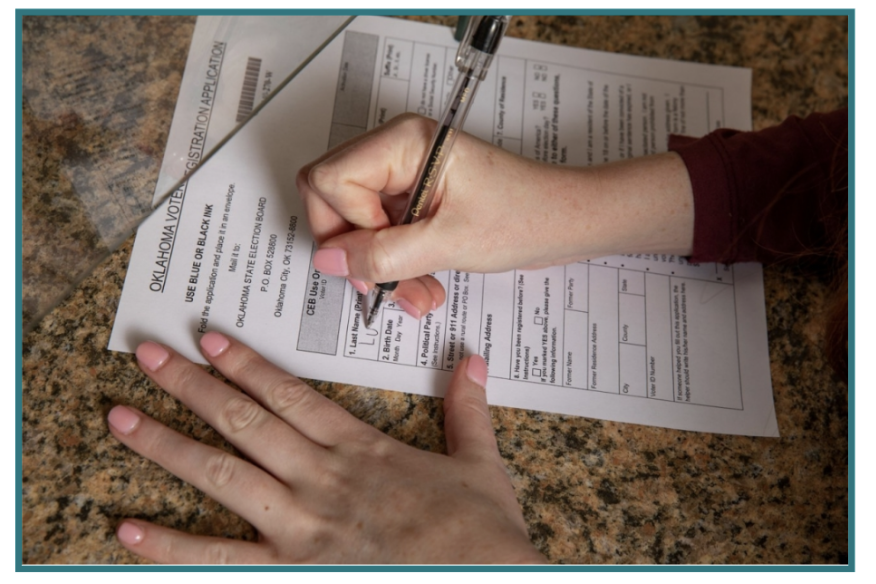
TOP STRATEGIES/INITIATIVES TO INCREASE REGISTRATION & TURNOUT
State efforts to facilitate youth voting
- OK Voter Portal.
- Bipartisan vote passed extension of period for early voting (H.B. 2663).
- Oklahoma State Election Board website includes FAQs.
- State ID rules and helpline.
- Oklahoma: Election deadlines, dates, and rules
High school Initiatives
- LWV Oklahoma hosts nonpartisan Student Leader Program that supports high school registration drives.
- Oklahoma City Public Schools hosted registration drive at all of its high schools in 2022.
- Pre-registration allowed from age of 16.
College and University initiatives
- Nine Oklahoma campuses participated in the ALL IN Campus Democracy Challenge.
- Several universities prepared thoughtful campus-wide strategies to increase voting, e.g. Southwestern Oklahoma State and University of Oklahoma, Norman.
- In-person and online events promoting voter registration.
- Notary services for students submitting absentee ballots.
- LWV encourages responsible use of social media for civic engagement.
- Data for Oklahoma State University reports 78% registration but only 57.2% voting rate.
- College enrollment and in-person classes and campus activities reduced due to pandemic.
- OKLAHOMA CAMPUS VOTER GUIDE
Other Factors and Initiatives
- Absentee voting, which required notarized ballots, tripled in 2020 due to pandemic.

This profile was prepared by Your Voice Matters, a nonpartisan initiative to increase registration of youth.
We welcome your feedback to improve this profile!
Oregon |
|||||||
|---|---|---|---|---|---|---|---|
2014 |
2016 |
2018 |
2020 |
2022 |
2024 |
||
Midterm |
General |
Midterm |
General |
Midterm |
General |
||
VOTER TURNOUT 18-29 |
31.90% | 50.50% | 44.50% | 58.70% | 53.80% | Frey* | |
VOTER TURNOUT 18-19 |
– | – | – | 50% | – | CIRCLE* | |
REGISTRATION RATE 18-24 |
39.10% | 58.30% | 61.10% | 65.20% | 65.50% | Census* | |
VOTER TURNOUT 18-24 |
23.40% | 45.20% | 38.20% | 53.80% | 42.40% | Census* | |
OREGON

42.40%
YOUTH TURNOUT
OREGON YOUTH VOTE
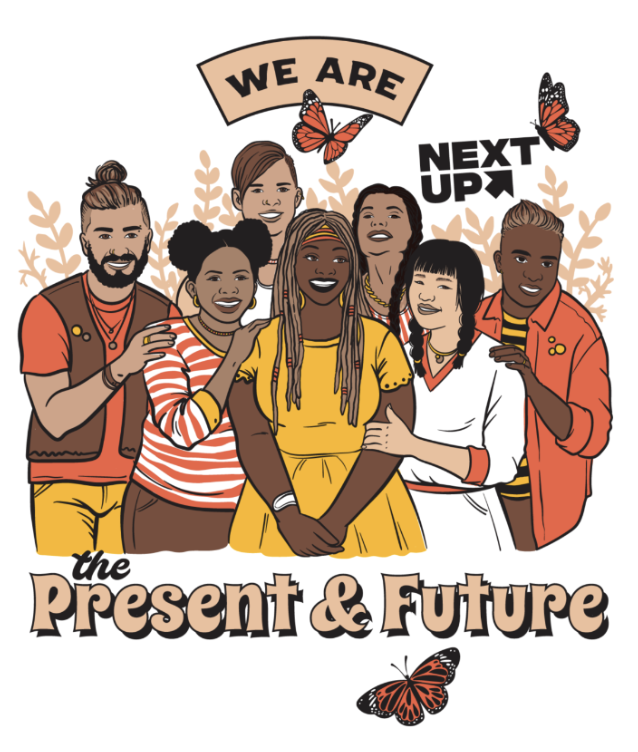
TOP STRATEGIES/INITIATIVES TO INCREASE REGISTRATION & TURNOUT
State efforts to facilitate youth voting
- Official Oregon site to support student voters.
- State ID rules and helpline for Oregon.
- Oregon: Election deadlines, dates, and rules
High school Initiatives
- Residents of Oregon can pre-register at 16, vote at 18.
- High school websites supported student registration in 2020 election.
- NextupOregon hires election organizers and engages interns to reach hundreds of new voters.
College and University initiatives
- OSPIRG, founded by students at the University of Oregon in 1971, mobilized volunteers across Oregon and made 20,000 GOTV contacts in 2020.
- Nine Oregon campuses participated in ALL IN Campus Democracy Challenge. Oregon State University had a turnout of 73.3% of eligible voters on campus, a total of more than 20,000 students voting.
- University of Oregon and Oregon State also participated in the Pac-12 Voter Challenge.
- 100% eligible University of Oregon athletes registered to vote and kept score on a posted leaderboard.
- League of Women Voters Oregon support civics education curriculum in Oregon schools as well as the Oregon Student Mock Election.
- OREGON CAMPUS VOTER GUIDE
Other Factors and Initiatives
Oregon Had the 4th Highest Youth Voter Turnout inthe 2022 Midterms

This profile was prepared by Your Voice Matters, a nonpartisan initiative to increase registration of youth.
We welcome your feedback to improve this profile!
PENNSYLVANIA YOUTH VOTE
Deadline for registration: October 21, 2024
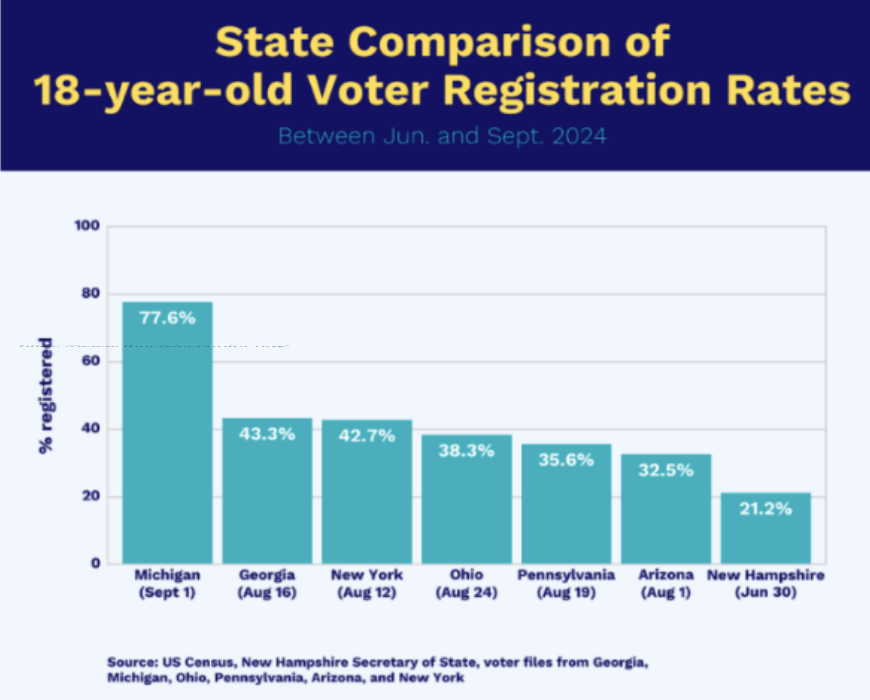
REGISTER AND VOTE IN PENNSYLVANIA!
- Pennsylvania Secretary of State official website.
- PA ONLINE Voter Registration
- State ID rules and helpline for Pennsylvania.
- PA YOUTH VOTE
- Pennsylvania: Election deadlines, dates, and rules
- What’s on my ballot?
HIGH SCHOOL AND OTHER INITIATIVES TO REGISTER AND TURN OUT NEW VOTERS
- Students:
-
-
- PA Student Poll Worker Program
-
- PA Vote: Instagram
PENNSYLVANIA

38.20%
YOUTH TURNOUT 2022
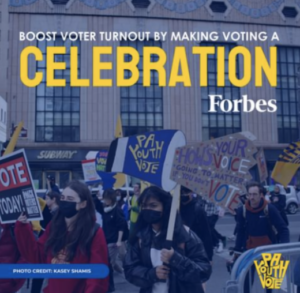
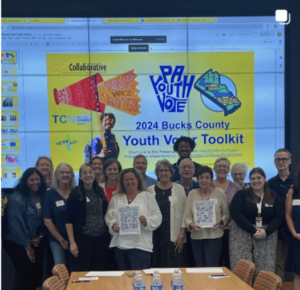
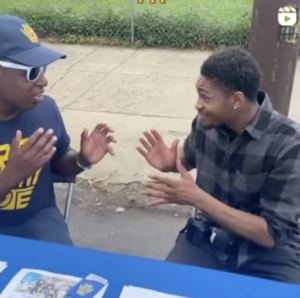
Governor’s Civic Engagement Award
- Register your high school for 2024-2025
- 2022-2023 Winners
- Bridge 21 HS link
- 2024-2025 Award announced to recognize PA high schools and students who engage students in voting.

- PA Youth Vote is a student-led nonpartisan coalition dedicated to putting students first and getting all 18 year olds to the polls on Election Day.
- Voter IDs for first time voters.
- Low registration rates of eligible voters in Civics Center analysis of Pennsylvania schools.155,000 individuals turn 18 each year in Pennsylvania per Census and AP data. See Future Voter Score Card.
College and University initiatives
- State voting portal for college students.
- 72 campuses participated in ALL IN Campus Democracy Challenge (see map).
- Eight campuses won Platinum Awards for voter turnout rates > 80%.
- Dickinson College achieved 85% turnout in one of the highest rates nationally. Dickinson Votes partnered with the Upsilon Delta Chapter of Delta Sigma Theta Sorority to host voter registration at the Black Cultural Festival hosted by a local nonprofit, Hope Station
- Pennsylvania ranked #1 for Youth Voter Impact in 2022.
- PA Youth Vote on Instagram
- Pennsylvania Campus Voter Guide
Other Factors and Initiatives
- School shootings stimulated interest in civic participation.
Pennsylvania Campus Voting Challenge Award Winners
- 4-Year Institutions Highest Voting Rate: Bryn Mawr College
- Highest Voter Registration Rate: Bryn Mawr College
- Most Improved Voting Rate: Saint Francis University
- Community Colleges Highest Voting Rate: Montgomery County Community College
- Highest Voter Registration Rate: Community College of Allegheny County
- Most Improved Voting Rate: Community College of Beaver County
Pennsylvania ranked #1 for Youth Voter Impact in 2022.
Pennsylvania |
|||||||
|---|---|---|---|---|---|---|---|
2014 |
2016 |
2018 |
2020 |
2022 |
2024 |
||
Midterm |
General |
Midterm |
General |
Midterm |
General |
||
VOTER TURNOUT 18-29 |
17.60% | 52.50% | 35.80% | 58.40% | 40.40% | Frey* | |
VOTER TURNOUT 18-19 |
– | – | – | 48.00% | – | CIRCLE* | |
REGISTRATION RATE 18-24 |
36.10% | 60.40% | 47.70% | 57.30% | 53.30% | Census* | |
VOTER TURNOUT 18-24 |
10.40% | 48.70% | 31.90% | 49.40% | 38.20% | Census* | |

This profile was prepared by Your Voice Matters, a nonpartisan initiative to increase registration of youth.
We welcome your feedback to improve this profile!
Rhode Island |
|||||||
|---|---|---|---|---|---|---|---|
2014 |
2016 |
2018 |
2020 |
2022 |
2024 |
||
Midterm |
General |
Midterm |
General |
Midterm |
General |
||
VOTER TURNOUT 18-29 |
16.40% | 47% | 38.50% | 50.30% | 25.60% | Frey* | |
VOTER TURNOUT 18-19 |
– | – | – | 18% | – | CIRCLE* | |
REGISTRATION RATE 18-24 |
41.10% | – | 55.50% | 58.10% | 60.70% | Census* | |
VOTER TURNOUT 18-24 |
13% | – | 37.80% | 49% | 27.10% | Census* | |
RHODE ISLAND

27.10%
YOUTH TURNOUT
RHODE ISLAND YOUTH VOTE

TOP STRATEGIES/INITIATIVES TO INCREASE REGISTRATION & TURNOUT
Statewide Policies and Resources
- Rhode Island Voter Information Center: Be a Voter, Make a Plan.
- State ID rules and helpline for Rhode Island.
- Rhode Island: Election deadlines, dates, and rules
High school Initiatives
- Voter pre-registration starts at 16, vote at 18.
- Rhode Island students sue the state for more civics education.
- Rock the Vote: Rhode Island.
College and University initiatives
- Rhode Island Campus Voting Challenge in collaboration with ALL IN Campus Democracy Challenge. 2020 Winners:
- Highest Voter Registration Award, 2-year Institution: Community College of Rhode Island
- Highest Voter Registration Award, 4-year Institution: University of Rhode Island
- Best Campus Democratic Engagement Action Plan Award, 4-year Institution: Brown University
- Student IDs are acceptable but not IDs issued by other states.
- RHODE ISLAND CAMPUS VOTER GUIDE
Other Factors and Initiatives
- Let Rhode Island Vote is an initiative to continue voting reforms introduced in response to the pandemic: expanding access to mail ballots, early voting, and drop boxes for mail-in ballots.

This profile was prepared by Your Voice Matters, a nonpartisan initiative to increase registration of youth.
We welcome your feedback to improve this profile!
South Carolina |
|||||||
|---|---|---|---|---|---|---|---|
2014 |
2016 |
2018 |
2020 |
2022 |
2024 |
||
Midterm |
General |
Midterm |
General |
Midterm |
General |
||
VOTER TURNOUT 18-29 |
21.30% | 45.30% | 28.90% | 50.50% | 30.40% | Frey* | |
VOTER TURNOUT 18-19 |
– | – | – | 38% | – | CIRCLE* | |
REGISTRATION RATE 18-24 |
45.20% | 54.50% | 44.90% | 61.40% | 38.90% | Census* | |
VOTER TURNOUT 18-24 |
19.30% | 42.70% | 23.30% | 51.40% | 22.90% | Census* | |
SOUTH CAROLINA

22.90%
YOUTH TURNOUT
SOUTH CAROLINA YOUTH VOTE
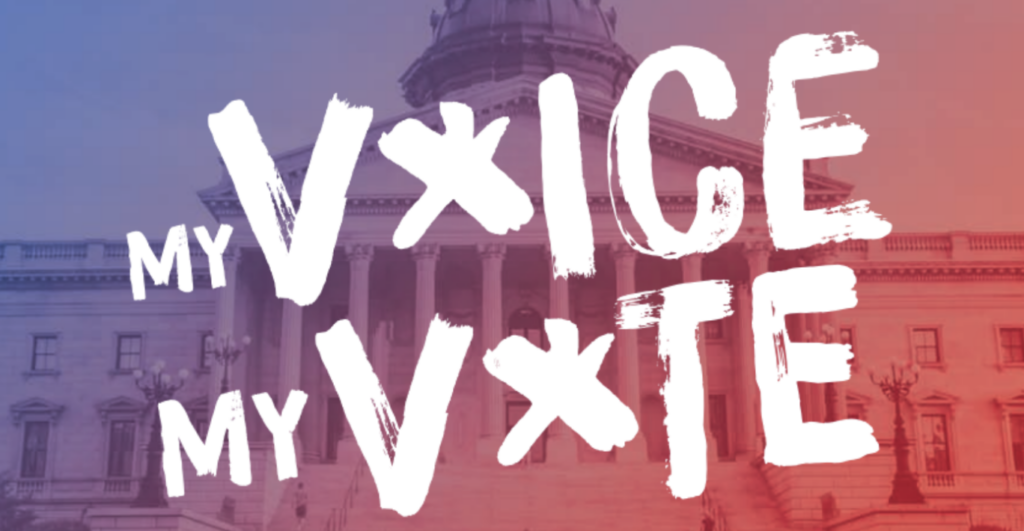
TOP STRATEGIES/INITIATIVES TO INCREASE REGISTRATION & TURNOUT
State Initiatives and Resources
- South Carolina Election Commission
- Out of state and student IDs are not accepted.
- State ID rules and helpline for South Carolina.
- South Carolina: Election deadlines, dates, and rules
High School Initiatives
- “Citizens who are not yet 18-years-old but will turn 18 before the next ensuing General Election, and who otherwise qualify to vote, have the right to register beginning 120 days prior to the closing of the books of a preceding primary.” (S.C. Code of Laws 7-5-180)
- LWV South Carolina holds registration drives in high schools for students, faculty, and staff
College and University initiatives
- Welcome back South Carolina students! Winning campus campaigns made heavy use of social media to overcome the challenges of the pandemic and achieve results.
- 12 campuses participated in ALL IN Campus Democracy Challenge.
- Wofford College was recognized for achieving the highest registration rate (93.4%) and highest turnout (75.5%) in 2020 in the Southern Conference.
- South Carolina State University joined the national #VoteHCU campaign and made heavy use of social media to register and turn out Black voters.
- SOUTH CAROLINA CAMPUS VOTER GUIDE
Other Factors and Initiatives

This profile was prepared by Your Voice Matters, a nonpartisan initiative to increase registration of youth.
We welcome your feedback to improve this profile!
South Dakota |
|||||||
|---|---|---|---|---|---|---|---|
2014 |
2016 |
2018 |
2020 |
2022 |
2024 |
||
Midterm |
General |
Midterm |
General |
Midterm |
General |
||
VOTER TURNOUT 18-29 |
15.30% | 37.20% | 27.70% | 43% | 21.90% | Frey* | |
VOTER TURNOUT 18-19 |
– | – | – | 12% | – | CIRCLE* | |
REGISTRATION RATE 18-24 |
– | – | 46.20% | 50.50% | 47.70% | Census* | |
VOTER TURNOUT 18-24 |
– | – | 25.80% | 42.70% | 17.10% | Census* | |
SOUTH DAKOTA

17.10%
YOUTH TURNOUT
SOUTH DAKOTA YOUTH VOTE
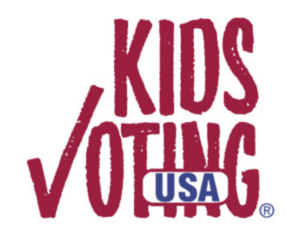
TOP STRATEGIES/INITIATIVES TO INCREASE REGISTRATION & TURNOUT
State Initiatives and Resources
- Secretary of State Voter Information Portal.
- Student-friendly voting laws, e.g. same day registration and no excuse absentee voting.
- Long election season – voting starts in September.
- State ID rules and helpline.
- South Dakota: Election deadlines, dates, and rules
High school Initiatives
- Kids Voting South Dakota supports K-12 civic education curriculum.
- LWV of South Dakota encourages citizen participation.
- Southeastern branch reports high school registration efforts on line.
College and University initiatives
- Black Hills State University is the only college/university currently participating in the ALL IN Campus Democracy Challenge. Achieved 70.8% voter registration and 51.3% turnout of eligible voters.
- SOUTH DAKOTA CAMPUS VOTER GUIDE
Other Factors and Initiatives
- Rock the Vote South Dakota.
- Pandemic restrictions and school closures made voting more challenging.

This profile was prepared by Your Voice Matters, a nonpartisan initiative to increase registration of youth.
We welcome your feedback to improve this profile!
Tennessee |
|||||||
|---|---|---|---|---|---|---|---|
2014 |
2016 |
2018 |
2020 |
2022 |
2024 |
||
Midterm |
General |
Midterm |
General |
Midterm |
General |
||
VOTER TURNOUT 18-29 |
12.90% | 33.50% | 35.60% | 51.10% | 27.40% | Frey* | |
VOTER TURNOUT 18-19 |
– | – | – | 12.70% | – | CIRCLE* | |
REGISTRATION RATE 18-24 |
41.10% | 45% | 44.10% | 58.10% | 36.70% | Census* | |
VOTER TURNOUT 18-24 |
11.80% | 29.90% | 30.70% | 46.90% | 21.80% | Census* | |
TENNESSEE

21.80%
YOUTH TURNOUT
TENNESSEE YOUTH VOTE
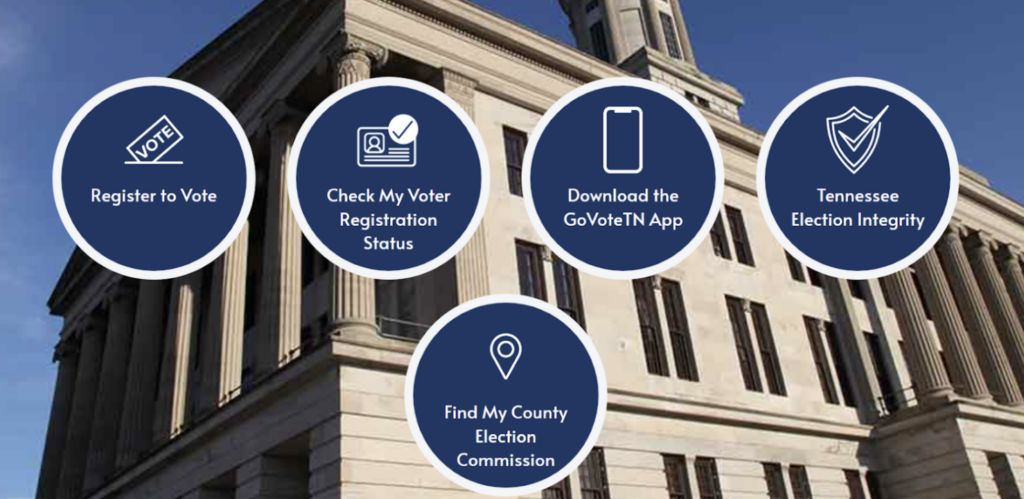
TOP STRATEGIES/INITIATIVES TO INCREASE REGISTRATION & TURNOUT
State Efforts to Facilitate Youth Voting
- Tennessee official voting website.
- Student IDs and out-of-state IDs are not accepted.
- State ID rules and helpline for Tennessee.
- Tennessee: Election deadlines, dates, and rules
High school Initiatives
- Tennessee students participated in 2022 mock election. More than 37,000 students from 262 schools “voted” in the Presidential election in 2020.
- Tennessee high schools registering 100% of eligible students in 2020 earn the Anne Dallas Dudley Award, named after the Tennessee suffragist.
Find your high school!
- Tennessee governor supporting and recognizing excellence in civic education in Tennessee.
College and University initiatives
- 23 campuses participated in ALL IN Campus Democracy Challenge.
- University of Tennessee at Chattanooga won the Highest Voter Turnout Award (65.2%) in the Southern Conference.
- TENNESSEE CAMPUS VOTER GUIDE
Other Factors and Initiatives
- Rock the Vote Tennessee.
- LWV Nashville chapter’s website provides tools for new voters and decries the low voter turnout in recent elections.
- LWV and other nonpartisan groups filed suit against the state of Tennessee for a law that penalized groups that foster voter registration, adversely affecting the rights of students and other Tennessee citizens to vote.

This profile was prepared by Your Voice Matters, a nonpartisan initiative to increase registration of youth.
We welcome your feedback to improve this profile!
Texas |
|||||||
|---|---|---|---|---|---|---|---|
2014 |
2016 |
2018 |
2020 |
2022 |
2024 |
||
Midterm |
General |
Midterm |
General |
Midterm |
General |
||
VOTER TURNOUT 18-29 |
15.10% | 38.60% | 30.40% | 45.80% | 24.60% | Frey* | |
VOTER TURNOUT 18-19 |
– | – | – | 21.50% | – | CIRCLE* | |
REGISTRATION RATE 18-24 |
33.10% | 40.80% | 42.30% | 50.10% | 39.60% | Census* | |
VOTER TURNOUT 18-24 |
11% | 27.30% | 25% | 39.10% | 19.20% | Census* | |
TEXAS

19.20%
YOUTH TURNOUT
TEXAS YOUTH VOTE

TOP STRATEGIES/INITIATIVES TO INCREASE REGISTRATION & TURNOUT
Statewide Policies and Resources
- Vote Texas–official Secretary of State website.
- Voter registration starts at 17 years, 10 months, vote at 18.
- State ID rules and helpline for Texas.
- Texas: Election deadlines, dates, and rules
High school Initiatives
- Texas law requires high schools to offer voter registration to students twice a year. A report by the Texas Civil Rights project suggests that the law is unevenly observed.
- The office of the Secretary of State urges students to participate in mock elections before they are eligible to vote.
- NextGen Texas is seeking to “close the generational gap.”
- Students who are at least 16 can serve as an Election Clerk.
- Support for first time voters.
College and University initiatives
- 49 campuses participated in ALL IN Campus Democracy Challenge.
- University of Texas at Austin and Texas Christian won Big Twelve Votes awards for highest registration and turnout.
- Texas Woman’s University won recognition for one of the best 2020 action plans.
- Move Texas, founded by University of Texas San Antonio students in 2013, has expanded statewide and registered 50,000 young people in 2020.
- TEXAS CAMPUS VOTER GUIDE
NGOs supporting youth vote
- League of Women Voters of Texas sponsors a website and multi-lingual helplines for student voters.
- NextGen Texas is seeking to “close the generational gap.”
- Students who are at least 16 can serve as an Election Clerk.
- Support for first time voters.
- Move Texas, founded by University of Texas San Antonio students in 2013, has expanded statewide and registered 50,000 young people in 2020.
Other Factors and Initiatives
- League of Women Voters of Texas sponsors a website and multi-lingual helplines for student voters.
- Student IDs are not acceptable for registration. See Texas ID helpline.
- Early registration deadlines!
- Texas’ new Voting maps do not reflect rise in populations of color documented in 2020 Census; criticized for gerrymandering college campuses.
- Texas is one of the youngest states in the US; one in three eligible voters is under 30.
- Texas passed laws that make voting more difficult such as increasing voter purges and reducing the number of polling places.

This profile was prepared by Your Voice Matters, a nonpartisan initiative to increase registration of youth.
We welcome your feedback to improve this profile!
Utah |
|||||||
|---|---|---|---|---|---|---|---|
2014 |
2016 |
2018 |
2020 |
2022 |
2024 |
||
Midterm |
General |
Midterm |
General |
Midterm |
General |
||
VOTER TURNOUT 18-29 |
17% | 46.90% | 38% | 53.10% | 24.10% | Frey* | |
VOTER TURNOUT 18-19 |
– | – | – | – | – | CIRCLE* | |
REGISTRATION RATE 18-24 |
28.70% | 50% | 44% | 52.90% | 32.50% | Census* | |
VOTER TURNOUT 18-24 |
13.40% | 41.60% | 33.10% | 47.30% | 15.90% | Census* | |
UTAH

15.90%
YOUTH TURNOUT
UTAH YOUTH VOTE

TOP STRATEGIES/INITIATIVES TO INCREASE REGISTRATION & TURNOUT
Statewide Policies and Resources
- Official Utah voting portal includes information for college students.
- Voter pre-registration starts at 16, vote at 18.
- Some out of state IDs and unexpired college IDs are accepted.
- Because of pandemic, ballots mailed to all registered voters.
- State ID rules and helpline for Utah.
High school Initiatives
- Voters 18-29 represent 27.1% of Utah’s electorate – one of the highest proportions in the US.
- Davis County has a comprehensive voting website with a section to engage students K-12.
College and University initiatives
- 11 campuses participated in ALL IN Campus Democracy Challenge;
- the University of Utah and Southern Utah University, held many registration events, forums, campus websites, pizza parties, and many other activities.
- Weber State University had one of the best action plans in 2020.
- Andrew Goodman Foundation recruits student Ambassadors to work on campuses.
- UTAH CAMPUS VOTER GUIDE
Other Factors and Initiatives
- Voterise–a Utah-based organization focused on young voters ran an innovative contest for 16-29 year olds in 2022 on the importance of local elections–”If I ran the city.”
- League of Women Voters Utah’s portal for statewide voting information.
- Utah ranked 23rd in voter turnout in 2018, an increase from 39th in 2016. Only 16.8% of Utah’s 18-29-year-olds voted in the 2018 midterm elections.”

This profile was prepared by Your Voice Matters, a nonpartisan initiative to increase registration of youth.
We welcome your feedback to improve this profile!
Vermont |
|||||||
|---|---|---|---|---|---|---|---|
2014 |
2016 |
2018 |
2020 |
2022 |
2024 |
||
Midterm |
General |
Midterm |
General |
Midterm |
General |
||
VOTER TURNOUT 18-29 |
11.80% | 44.90% | 36% | 50.10% | 41.30% | Frey* | |
VOTER TURNOUT 18-19 |
– | – | – | 25.70% | – | CIRCLE* | |
REGISTRATION RATE 18-24 |
– | – | – | – | 58% | Census* | |
VOTER TURNOUT 18-24 |
– | – | – | – | 39% | Census* | |
VERMONT

39.00%
YOUTH TURNOUT
VERMONT YOUTH VOTE
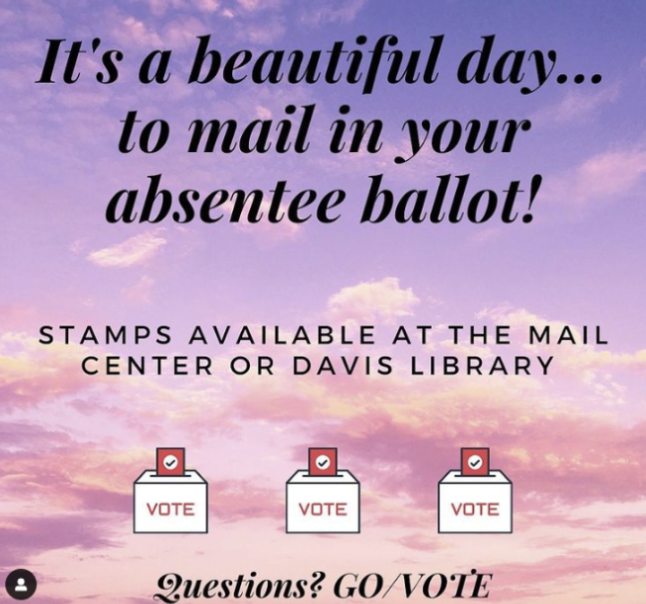
TOP STRATEGIES/INITIATIVES TO INCREASE REGISTRATION & TURNOUT
State efforts to facilitate youth voting
- Vermont’s multi-lingual portal for voters.
- Personal “My Voter Page.”
- State ID rules and helpline for Vermont.
- Vermont: Election deadlines, dates, and rules
High school Initiatives
- Vermont voters are allowed to register at 18.
- Guidance for first time voters.
College and University initiatives
- Four campuses participated in ALL IN Campus Democracy Challenge.
- Middlebury College registered 95.7% of eligible students and achieved 85.7% turnout in 2020. Led my MiddVote, a nonpartisan student group dedicated to civic engagement.
- Student group encourages civic engagement on campus.
- VERMONT CAMPUS VOTER GUIDE

This profile was prepared by Your Voice Matters, a nonpartisan initiative to increase registration of youth.
We welcome your feedback to improve this profile!
Virginia |
|||||||
|---|---|---|---|---|---|---|---|
2014 |
2016 |
2018 |
2020 |
2022 |
2024 |
||
Midterm |
General |
Midterm |
General |
Midterm |
General |
||
VOTER TURNOUT 18-29 |
20% | 57.10% | 42.10% | 59% | 32.80% | Frey* | |
VOTER TURNOUT 18-19 |
– | – | – | 55% | – | CIRCLE* | |
REGISTRATION RATE 18-24 |
43.20% | 61.10% | 50.60% | 55.50% | 48.80% | Census* | |
VOTER TURNOUT 18-24 |
15.40% | 54.60% | 35.80% | 47.40% | 25.20% | Census* | |
VIRGINIA

25.20%
YOUTH TURNOUT
VIRGINIA YOUTH VOTE
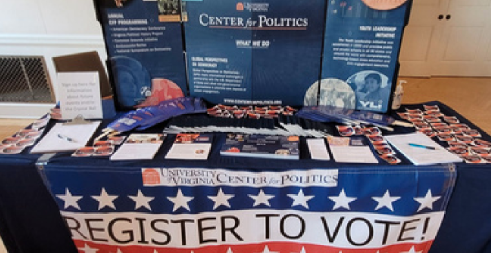
TOP STRATEGIES/INITIATIVES TO INCREASE REGISTRATION & TURNOUT
STATEWIDE POLICIES AND RESOURCES
- VA Board of Elections Registration Rules and Deadlines
- State ID rules and helpline for Virginia.
- Pre-registration starting at 16.
- VA Board of Election website has voting instructions for college students (in-state and out-of-state).
High school Initiatives
- Valid high school student ID accepted for registration.
- League of Women Voters -VA High School Voter Registration Challenge recognizes high schools with robust voter registration programs.
- Voter registration links for all participating high schools.
- K-12 Capitol Classroom for Virginia teachers and students.
College and University initiatives
- 25 campuses participated in ALL IN Campus Democracy Challenge in 2022 including the University of Virginia which had achieved a 68% voting rate in 2020. Virginia Wesleyan tied for the best Action Plan with its comprehensive plan to promote civic engagement campuswide. 2022 data not yet available.
- UVA’s Youth Leadership Initiative provides materials on civic education for teachers and students including a mock election.
- Students at James Madison University set up Tent Talks on campus to engage students in conversations about issues they cared about and encourage them to take action and vote.
- The fight for racial justice and BLM movement is influential for many young people.
School shootings stimulated interest in civic participation. - VIRGINIA CAMPUS VOTER GUIDE
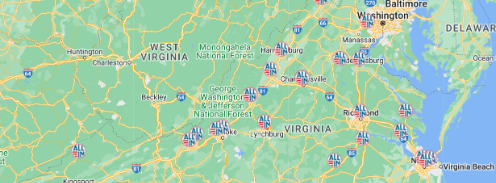

This profile was prepared by Your Voice Matters, a nonpartisan initiative to increase registration of youth.
We welcome your feedback to improve this profile!
Washington |
|||||||
|---|---|---|---|---|---|---|---|
2014 |
2016 |
2018 |
2020 |
2022 |
2024 |
||
Midterm |
General |
Midterm |
General |
Midterm |
General |
||
VOTER TURNOUT 18-29 |
22.10% | 50.60% | 39.60% | 57.50% | 31.30% | Frey* | |
VOTER TURNOUT 18-19 |
– | – | – | 58% | – | CIRCLE* | |
REGISTRATION RATE 18-24 |
40% | 54.40% | 50.40% | 51.60% | 44% | Census* | |
VOTER TURNOUT 18-24 |
21.40% | 42.20% | 32.20% | 48.60% | 25.90% | Census* | |
WASHINGTON

25.90%
YOUTH TURNOUT
WASHINGTON YOUTH VOTE
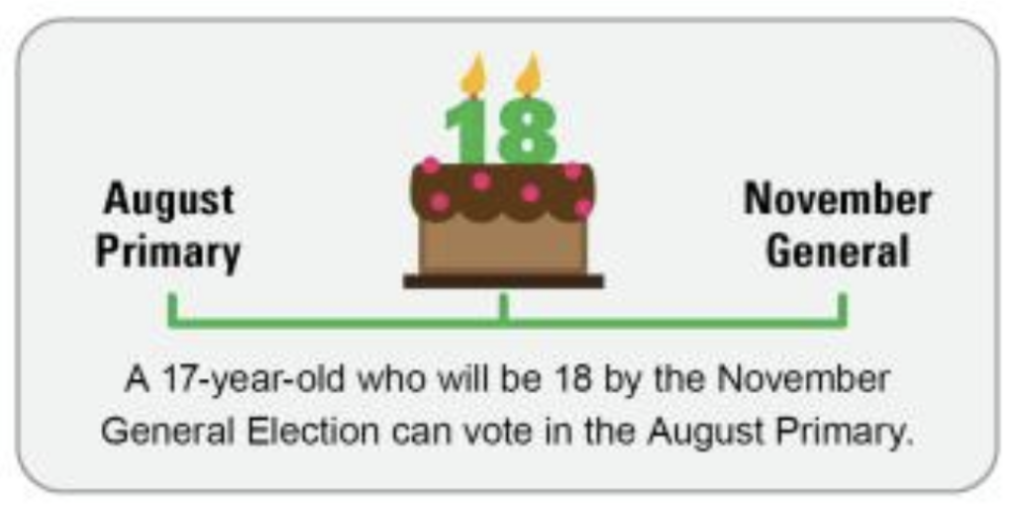
TOP STRATEGIES/INITIATIVES TO INCREASE REGISTRATION & TURNOUT
State Policies and Resources
- Secretary of State voting website.
- Online registration, vote by mail, drop off boxes, and same day registration, facilitate access and encourage participation.
- During pandemic, ballots mailed to all registered voters.
- Washington: Election deadlines, dates, and rules
High school Initiatives
- 16 and 17 year olds can sign up to be Future Voters and are automatically registered at 18. More information about Washington’s Future Voter Program.
- Washington Bus partners with high schools to mobilize young voters and has registered more than 70,000 Washington voters (Impact Report).
College and University initiatives
- Every campus is encouraged to participate in All IN Challenge and compete for Washington Campus Voting Challenge awards. 23 campuses participated in ALL IN Campus Democracy Challenge in 2022;
- Two campuses won Platinum Awards for voter turnout rates > 80%.
- Most Improved Turnout: Eastern Washington University
- Highest Turnout: University of Puget Sound
Highest Voter Registration Rate: University of Puget Sound - University of Puget Sound, at 84.9%, tied for the highest undergraduate voting rate nationally.
Other Resources and Initiatives
- League of Women Voters of Washington supports schools, teachers, and young voters with tools, tips, and civic education resources.
- Secretary of State Civic Education program.
- Washington’s overall turnout was 75.2% in 2020, one of the highest states in the US.

This profile was prepared by Your Voice Matters, a nonpartisan initiative to increase registration of youth.
We welcome your feedback to improve this profile!
District of Columbia |
|||||||
|---|---|---|---|---|---|---|---|
2014 |
2016 |
2018 |
2020 |
2022 |
2024 |
||
Midterm |
General |
Midterm |
General |
Midterm |
General |
||
VOTER TURNOUT 18-29 |
32.20% | 69.80% | 56.70% | 85.30% | 49% | Frey* | |
VOTER TURNOUT 18-19 |
– | – | – | – | – | Census* | |
REGISTRATION RATE 18-24 |
– | – | – | – | 60% | CIRCLE* | |
VOTER TURNOUT 18-24 |
– | – | – | – | 43.70% | Census* | |
WASHINGTON DC
43.70%
YOUTH TURNOUT
WASHINGTON, DC YOUTH VOTE
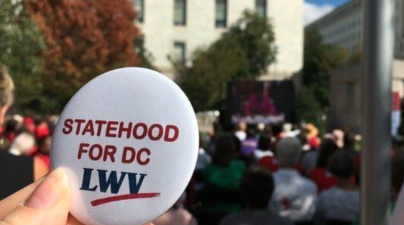
TOP STRATEGIES/INITIATIVES TO INCREASE REGISTRATION & TURNOUT OF YOUNG VOTERS
State efforts to facilitate youth voting
- DC Board of Elections registration information. Online, in-person and same day voter registration are available
- Starting in 2024, non-US citizens are allowed to register and vote in local elections.
- DC is a national center of civic engagement on issues of concern to young people, e.g. gun safety, reproductive rights, climate, etc.
High school Initiatives
- Registration: Pre-registration available from 16. Registration and voting is allowed at 17 in primary elections if 18 by the general.
- Board of Elections outreach to DC high schools and campuses.
- From age 16, students can be paid poll workers.
- LWVDC supports high school registration.
- On-line National Youth Summit for middle and high school students at DC-based Smithsonian Institution.
- Successful high school voter registration:
- National Honor Society and Rotary Interact chapters leading voter registration at Richard Wright PCS.
- 2024: State Board of Education resolution to create a citywide high school voter registration contest.
Find your high school!
College and University initiatives
- Four DC campuses participated in the 2022 ALL IN Campus Democracy Challenge. 2022 NSLVE data is not yet available.
- Because of large out of state student bodies, several campuses partnered with TurboVote to facilitate voting in home states.
- Blackgirlsvote.com has an active DC chapter on the Howard University campus.
- WASHINGTON, DC CAMPUS VOTER GUIDE
OTHER INFLUENCES
- Voters 18-29 represent 27.1% of the electorate – the highest proportion in the US (tied with Utah).
- Lack of statehood status and full Congressional representation may decrease interest in elections.

This profile was prepared by Your Voice Matters, a nonpartisan initiative to increase registration of youth.
We welcome your feedback to improve this profile!
West Virginia |
|||||||
|---|---|---|---|---|---|---|---|
2014 |
2016 |
2018 |
2020 |
2022 |
2024 |
||
Midterm |
General |
Midterm |
General |
Midterm |
General |
||
VOTER TURNOUT 18-29 |
17% | 35.60% | 24.50% | 35.20% | 18.70% | Frey* | |
VOTER TURNOUT 18-19 |
– | – | – | 36% | – | CIRCLE* | |
REGISTRATION RATE 18-24 |
46.20% | 50.30% | 47% | 46.10% | 42.60% | Census* | |
VOTER TURNOUT 18-24 |
14.30% | 32.20% | 21.30% | 34.20% | 14.20% | Census* | |
WEST VIRGINIA

14.20%
YOUTH TURNOUT
WEST VIRGINIA YOUTH VOTE

TOP STRATEGIES/INITIATIVES TO INCREASE REGISTRATION & TURNOUT
Statewide Policies and Resources
- West Virginia Voter Portal.
- State ID rules and helpline.
- West Virginia: Election deadlines, dates, and rules
High school Initiatives
- The Secretary of State of West Virginia awarded the Jennings Randolph Award to 41 high schools that registered 85-100% of eligible students in 2022. The award is named after US Senator Jennings Randolph— the “Father of the 26th Amendment” which lowered the age of voting from 21 to 18.
Find your high school!
- West Virginia Young Voter Registration Day video.
College and University initiatives
- Four campuses participated in the ALL IN Campus Democracy Challenge
- West Virginia University has developed its first action plan for the 2022 election.
- The University of Charleston achieved 47% turnout in 2020.
- Marshall University has been designated a Voter Friendly Campus for 2021-2022 and has an early voting station on campus.
- WEST VIRGINIA CAMPUS VOTER GUIDE
Other Resources and Initiatives
- The League of Women Voters published a how to guide to support voter registration campaigns by its chapters and others.
- Rock the Vote published voting information for West Virginia.

This profile was prepared by Your Voice Matters, a nonpartisan initiative to increase registration of youth.
We welcome your feedback to improve this profile!
Wisconsin |
|||||||
|---|---|---|---|---|---|---|---|
2014 |
2016 |
2018 |
2020 |
2022 |
2024 |
||
Midterm |
General |
Midterm |
General |
Midterm |
General |
||
VOTER TURNOUT 18-29 |
29% | 48.8% | 47.7% | 64.3% | 50.8% | Frey* | |
VOTER TURNOUT 18-19 |
– | – | – | – | – | CIRCLE* | |
VOTER TURNOUT 18-24 |
26.90% | 45.60% | 46.90% | 60% | 50.80% | Census* | |
REGISTRATION RATE 18-24 |
45.60% | 49.20% | 54% | 57.4% | 58% | Census* | |
WISCONSIN

50.8%
YOUTH TURNOUT
WISCONSIN YOUTH VOTE
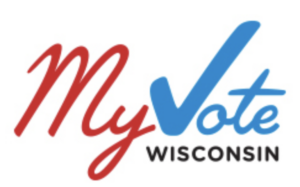
TOP STRATEGIES/INITIATIVES TO INCREASE REGISTRATION & TURNOUT
Statewide Policies and Resources
- My Vote Wisconsin – easily accessible information about voting and registration including information about what is on the ballot in English and Spanish.
- Absentee ballots available and easily accessible
- State ID rules and helpline for Wisconsin.
High school Initiatives
- State law allows high school students to work the polls.
College and University initiatives
- 20 campuses competed in the ALL IN Campus Democracy Challenge.
- 2020 Wisconsin Campus Voting Challenge Award Winners:
- Highest Voter Registration Award, 2-year Institution: Madison Area Technical College
- Highest Voter Registration Award, 4-year Institution: University of Wisconsin-Madison
- Most Improved Voter Turnout Award, 2-year Institution: Western Technical College
- Most Improved Voter Turnout Award, 4-year Institution: University of Wisconsin-Madison
- Highest Voter Turnout Award, 2-year Institution: Madison Area Technical College
- Highest Voter Turnout Award, 4-year Institution: University of Wisconsin-Madison
- Best Campus Democratic Engagement Action Plan Award, 4-year Institution: University of Wisconsin-Milwaukee
- The University of Wisconsin at LaCrosse, Madison, Milwaukee were designated as Andrew Goodman Voter Friendly Campus
- League of Women Voters Wisconsin assisting UW Madison students with voter registration and IDs.
- NextGen Wisconsin promotes youth voting, volunteering and political action.
- Campus IDs don’t always meet Wisconsin requirements for voter registration.
Other Resources and Initiatives
- Wisconsin’s overall turnout was more than 75%, one of the highest of all states.

This profile was prepared by Your Voice Matters, a nonpartisan initiative to increase registration of youth.
We welcome your feedback to improve this profile!
Wyoming |
|||||||
|---|---|---|---|---|---|---|---|
2014 |
2016 |
2018 |
2020 |
2022 |
2024 |
||
Midterm |
General |
Midterm |
General |
Midterm |
General |
||
VOTER TURNOUT 18-29 |
19.40% | 54.80% | 25.20% | 47.90% | 24.30% | Frey* | |
VOTER TURNOUT 18-19 |
– | – | – | – | – | CIRCLE* | |
REGISTRATION RATE 18-24 |
– | – | – | – | 42.50% | Census* | |
VOTER TURNOUT 18-24 |
– | – | – | – | 20.80% | Census* | |
WYOMING

20.80%
YOUTH TURNOUT
WYOMING YOUTH VOTE
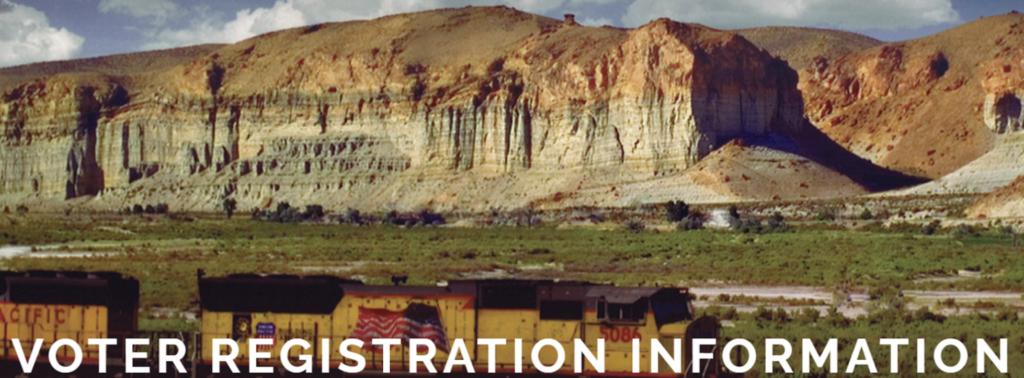
TOP STRATEGIES/INITIATIVES TO INCREASE REGISTRATION & TURNOUT
Statewide Policies and Resources
- Wyoming’s Election Center posts information for first time voters.
- Sweetwater County posts election information online.
- State ID rules and helpline for Wyoming
- Wyoming: Election deadlines, dates, and rules
High school Initiatives
- Wyoming allows individuals to register to vote if they will turn 18 by the next election (Wyo. Stat. §22-3-102).
- Wyoming Youth Voter Initiative is sponsored by the state’s Election Center. It reported that only 10.6% of 18-24 year olds voted in 2014.
- The Wyoming League of Voters is open to members from the age of 16.
College and University initiatives
- The University of Wyoming participated in ALL IN Campus Democracy Challenge and was able to achieve a 63% voting rate of eligible students with increases among all races and ethnic groups. In-person voting declined while other methods increased.
- WYOMING CAMPUS VOTER GUIDE
Other Factors and Initiatives
- Better Wyoming, a nonpartisan grassroots group, promotes vote tripling and other civic initiatives.

This profile was prepared by Your Voice Matters, a nonpartisan initiative to increase registration of youth.
We welcome your feedback to improve this profile!


